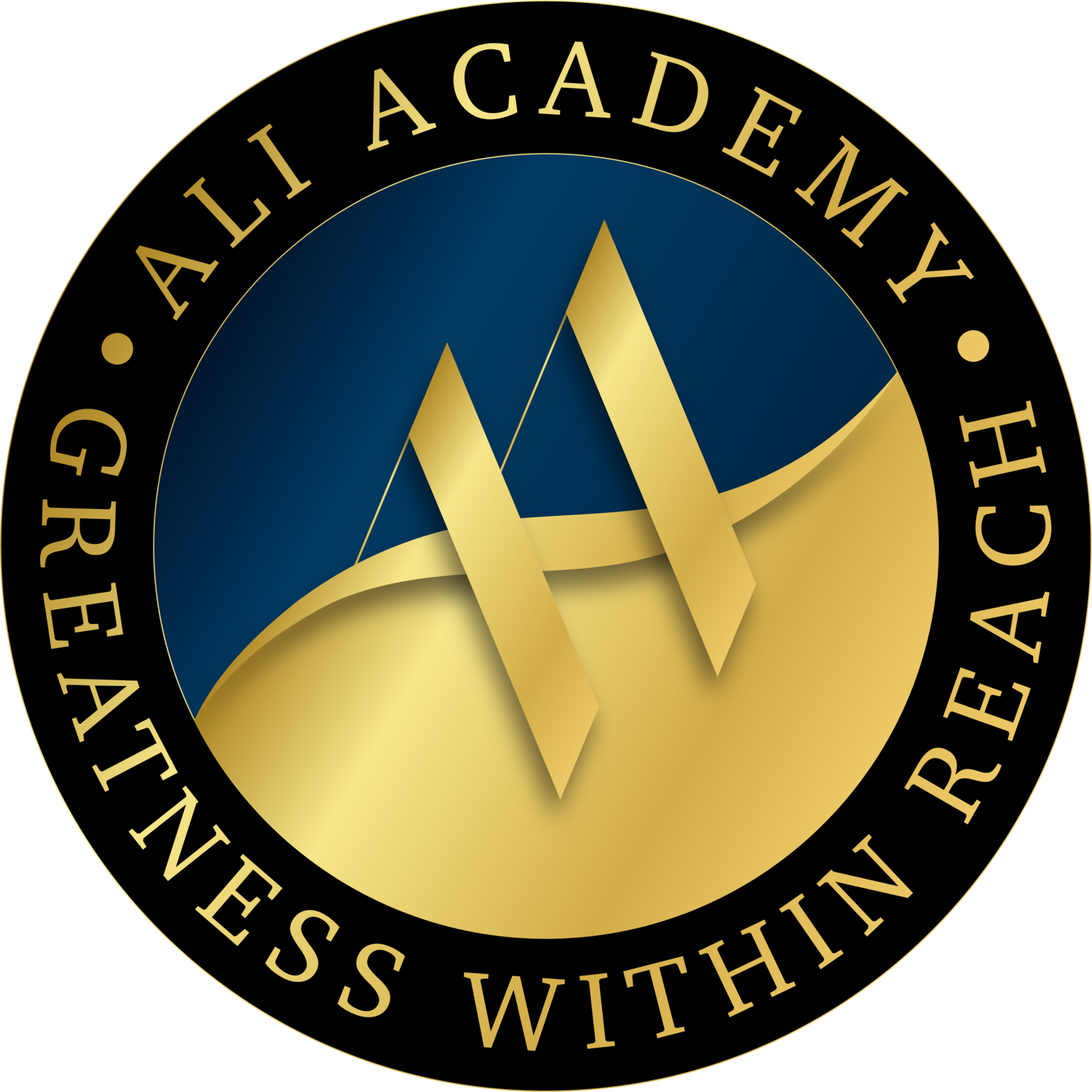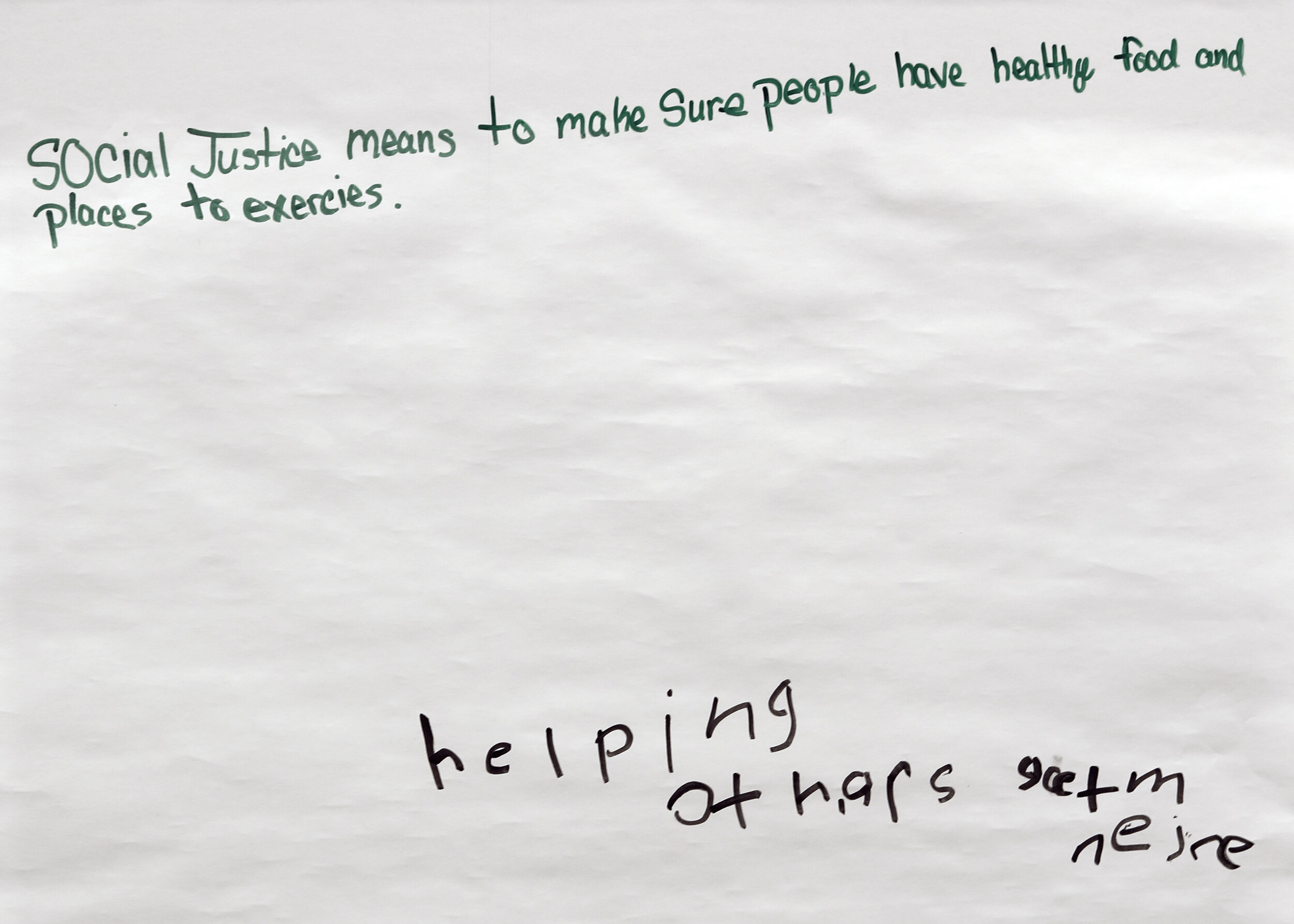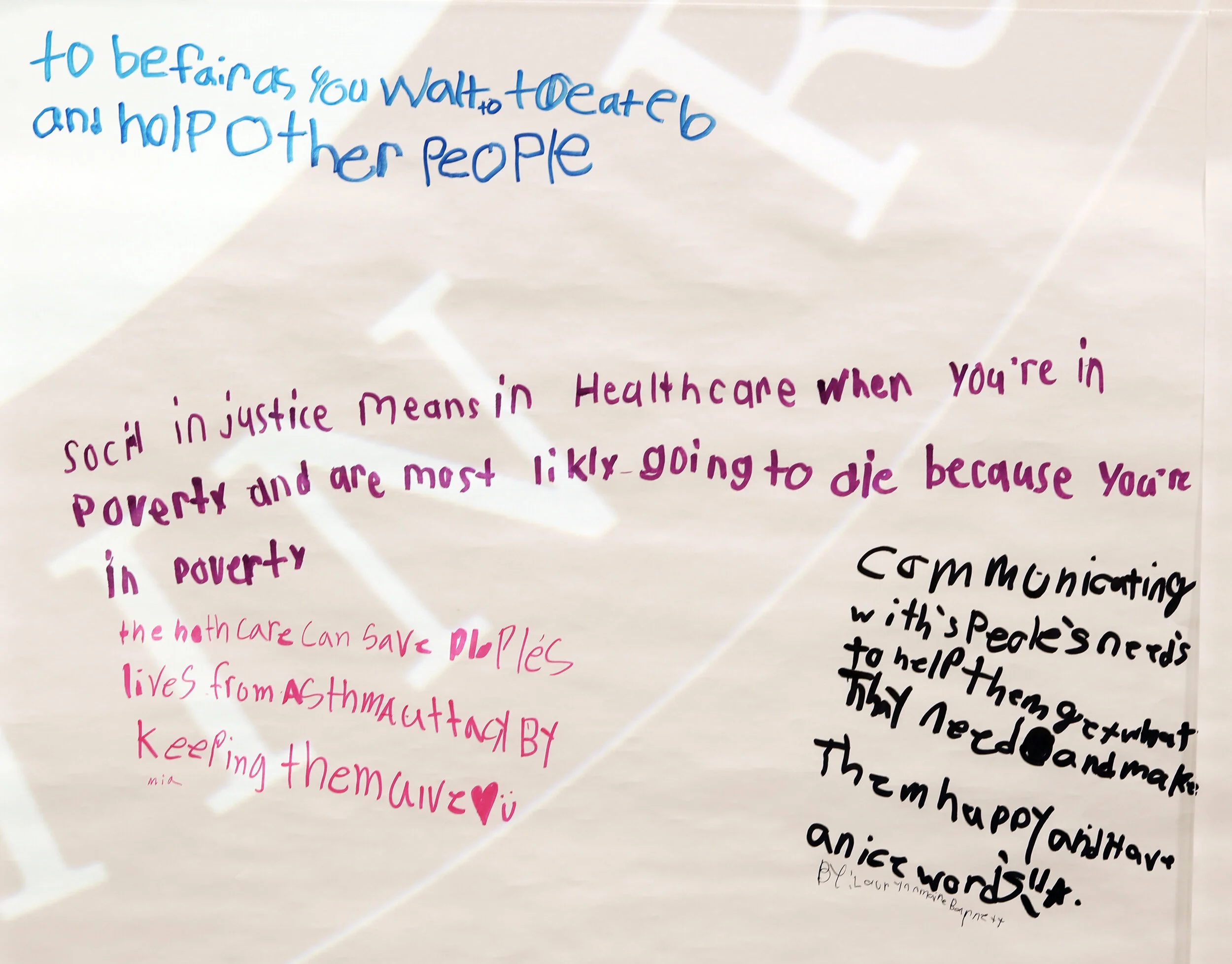
Social Justice Spring Break Camp
Ali Academy had the pleasure to host its very first social justice spring break camp for scholars in the city of St. Louis. For two days scholars got to learn more about issues around racism, violence and poverty and visualize their dream neighborhood and take action towards achieving it.
Unlike your typical spring break camp, scholars got to dream. They dreamed of a better world. They dreamed of a world without suicide, a world where everyone had access to health care, and a world where everyone was free from violence. They then set out to make those dreams a little bet more real. Scholars studied about issues in health care and housing in St. Louis. They also learned how to read graphs and statistics so they could have a better understanding about the challenges we face in society. We explored careers in each area, talked to doctors and nurses, housing developers, city officials, and police officers, and took action to achieve social justice.
They made signs to put up in their neighborhood to take action against violence
Our second field trip was to Barnes-Jewish St. Peters Hospital. Scholars had questions about a man that died in their parking lot after being denied treatment repeatedly. They had questions about racism in health care and who is entitled to care. The staff and President Gina Calder took time to answer their important questions and have a conversation. Ms. Calder explained that the hospital provides service to people regardless of their ability to pay
Andrew decided to make a public service announcement letting those who may be suffering from bullying and or abuse that there is help available for them
Scholars went to the downtown police station to share their thoughts on racism and police brutality with Officer Mueller of SLPD. They made posters to show what they had talked about earlier around the violence in St. Louis and how it needs to change
The first day started with a big breakfast at 8 am and welcoming all scholars to our very first spring break social justice camp. They received a welcome kit of t-shirts and face masks and got to know each other a little better before starting off class. We then started to talk about social justice. Scholars were able to start thinking about their own definitions breaking down the word. Justice? What is that, what does it look like, how do you get it, what gets in the way? Scholars started to plot their ideas across the board and would do so throughout our two days (Pictures below)
Dr. Wilford Pinkney, the Director of Children, Youth, and Families for the City of St. Louis, connected us with Angela Brown, the CEO of the St. Louis Regional Health Commission. Ms. Brown spoke to our children about the challenges with health care and how the Commission tries to support people who do not have insurance afford health care. She also succeeded in inspiring a number of our scholars. The next day, one of our parents said,
“Naveah kept talking about how she wanted to grow up and be a CEO last night.”
That’s exactly they type of talk in which our scholars should be engaged - conversation about not only who they are or what they’ve learned, but who they want to be. Thank you Ms. Brown. Ms. April Griffin, also graced us with her presence. She is the Executive Director of the St. Louis Affordable Housing Commission. She spoke about the services she helps to provide St. Louis residence in order to keep them find housing and stay in their housing. Our scholars asked questions about her job, why people end up on the street, and what we can do to make sure everyone is housed. After their conversations with Ms. Brown and Ms. Griffin, scholars continued to refine their definitions of social justice. One Kindergarten scholar, Kaine, wrote,
“Being poor is an injustice”
We then posed the question to scholars, “So what are you going to do about it.” You should have seen the shock on their faces. “We’re only kids what do you want us to do about it,” They said. Well, “You tell us,” we replied. They got themselves in groups and began to discuss what they could do to promote social justice.
Roosevelt and Kavon formed a group to talk about violence in St. Louis. Kavon remarked,
“They’re always shooting up and down my block. I live in the same neighborhood as Roosevelt. It’s got to stop.”
Ronnie, Ali, Kaine, Chris, Ronnie also wanted to do something about violence, but they had a narrower concern. Why is it that police officers always seem to shoot black people, Chris asked. We had a discussion and talked about why he felt that way. We discussed that people of all races get shot, and whether it was sometimes justified. They shared information they had learned about George Floyd and Michael Brown and they had a discussion. Teachers at Ali Academy are very careful not to choose sides in any issue, but rather push scholars to think,
support their perspectives with evidence, consider the opinions of those who may disagree, and then take action. Ms. April Griffin really had an effect on Laurynn, Roosalyn, Shaun, and Naveah. They wanted to learn more and do more about people who didn’t have health care. Laurynn was enraged.
“Just because you don’t have money doesn’t mean you should die.”
Andrew decided to work by himself. He had an issue that was near and dear to his heart: Suicide prevention. At Ali Academy we explore social justice issues but we also allow scholars to identify issues that we may not have thought of. He kept talking about how children should get help if they were being abused or bullied at home or at school.
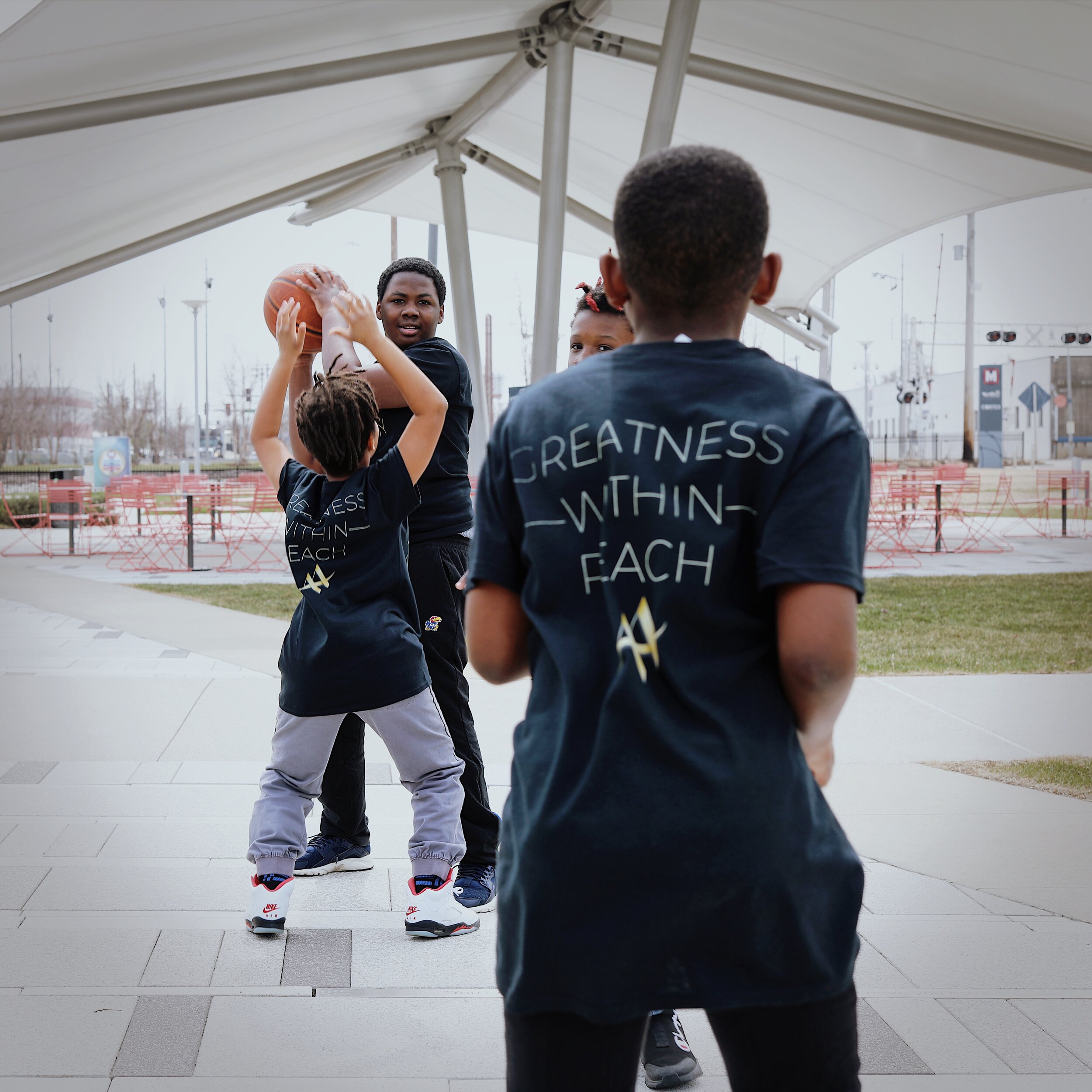
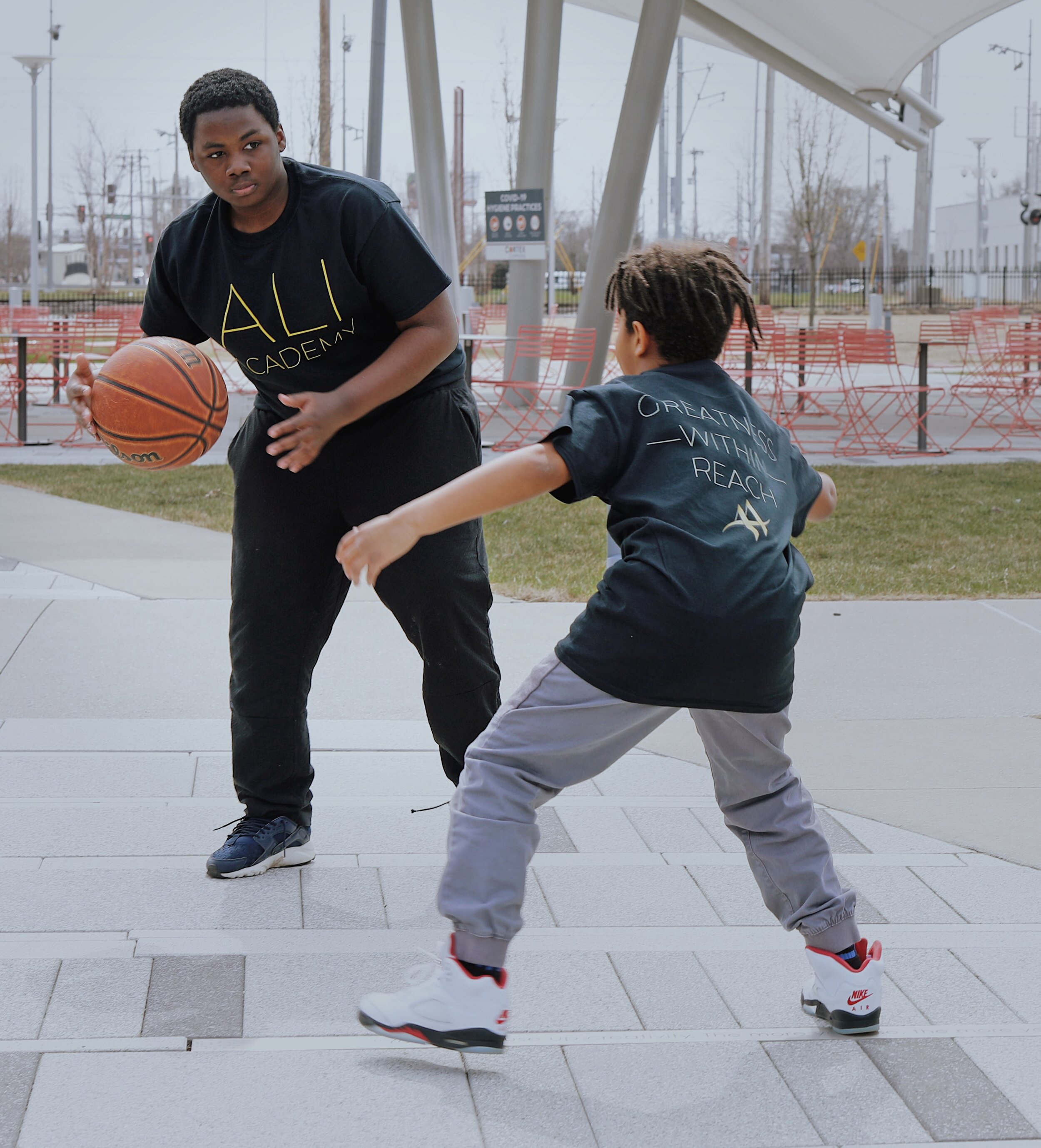
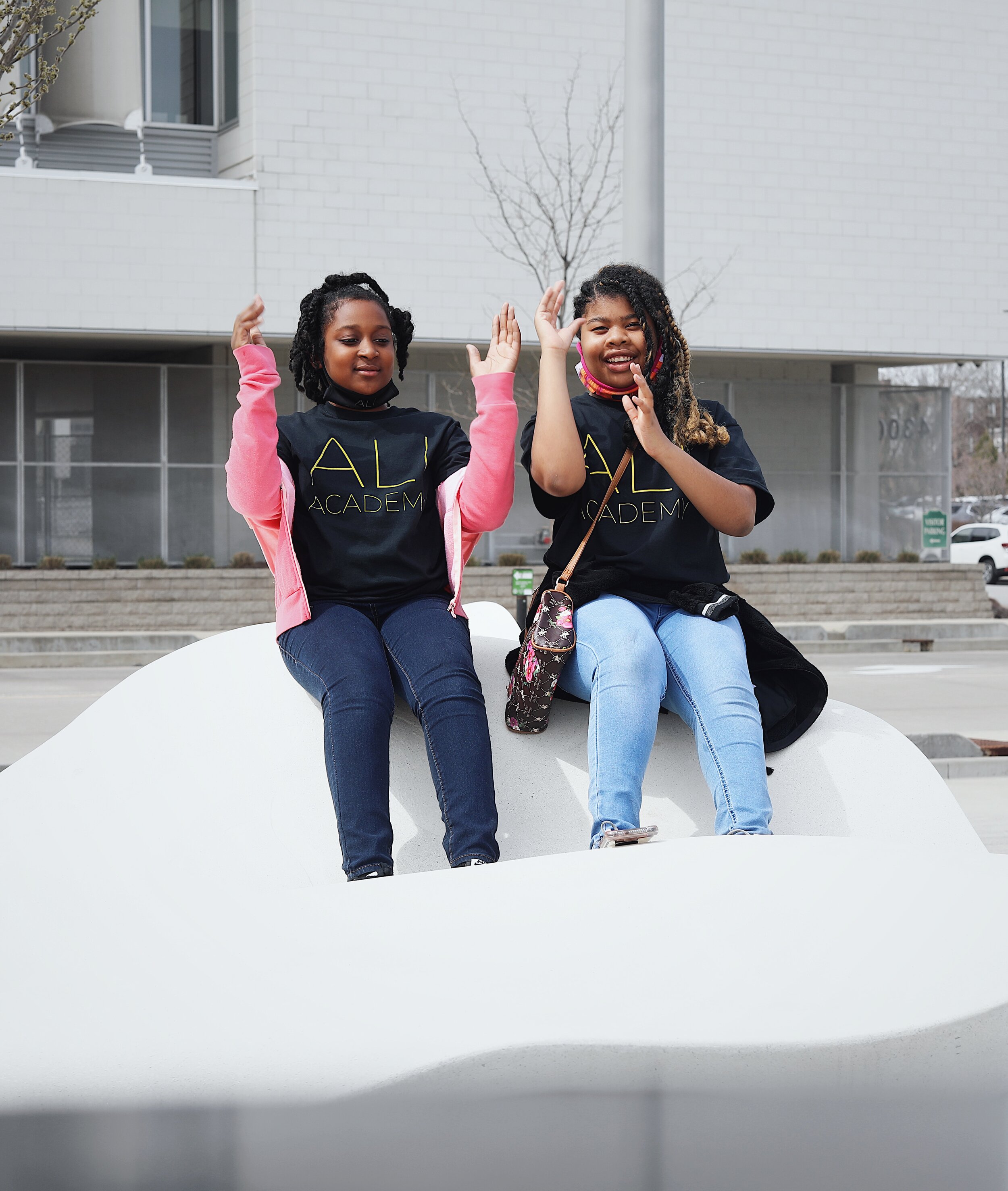
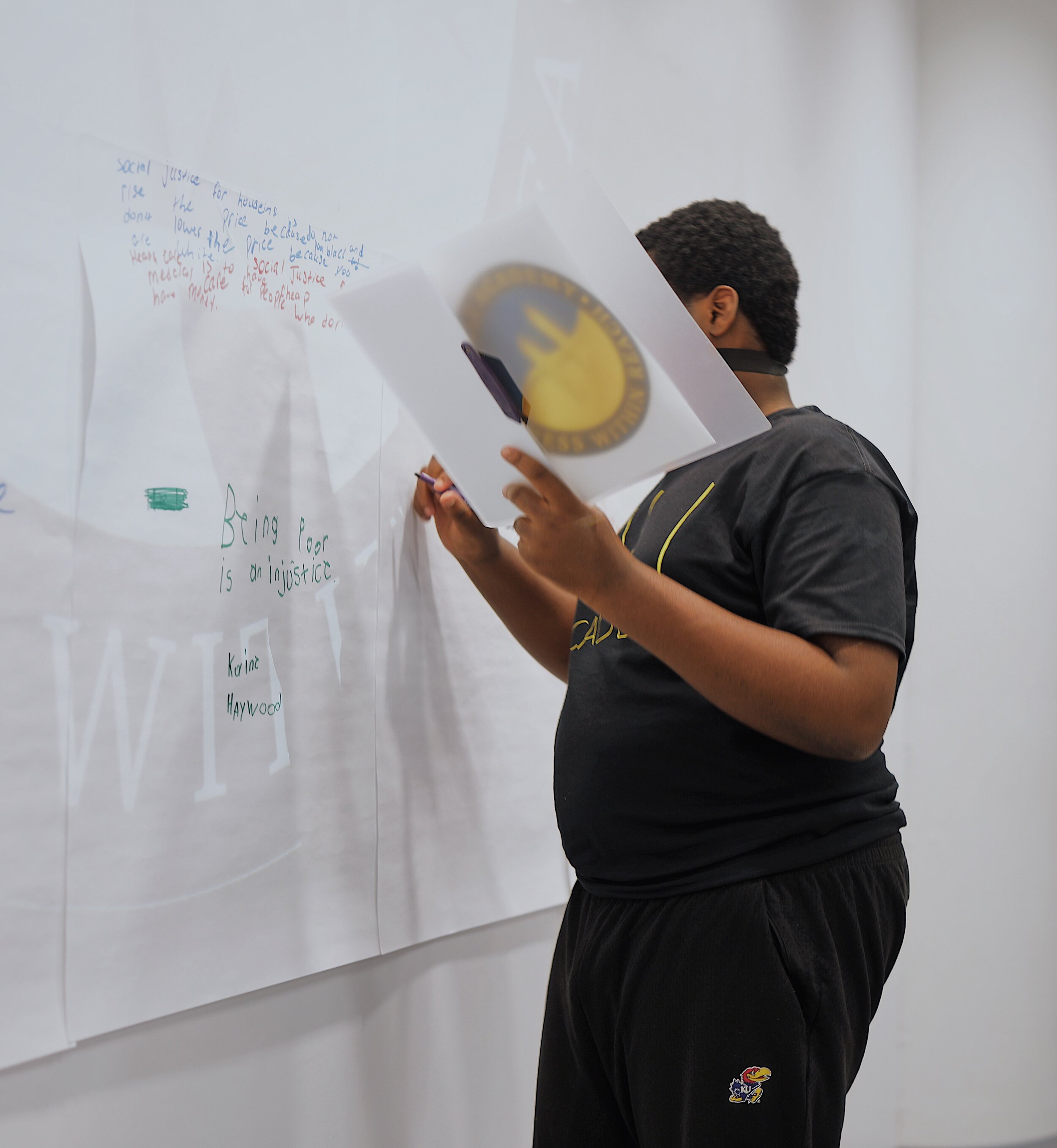
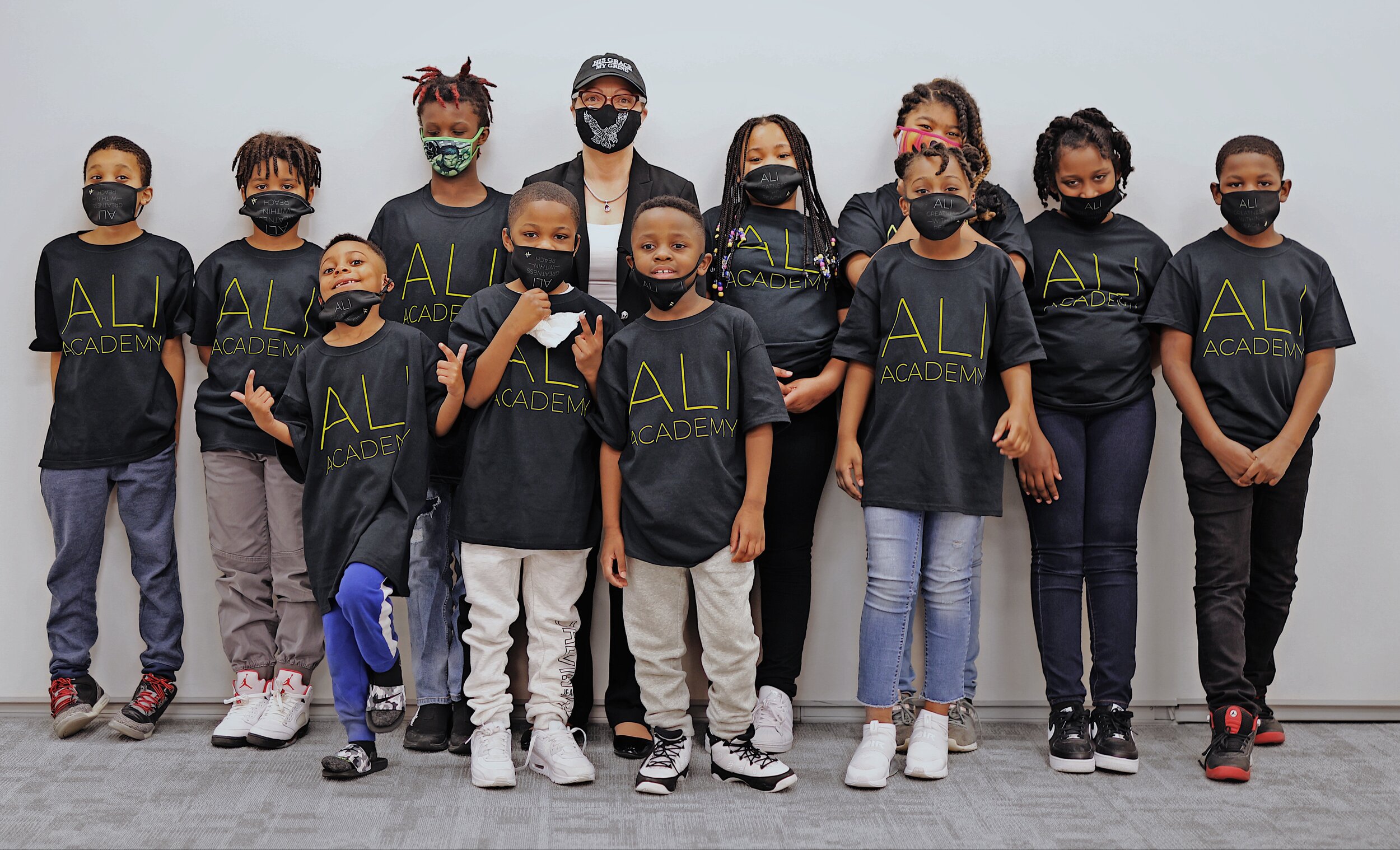
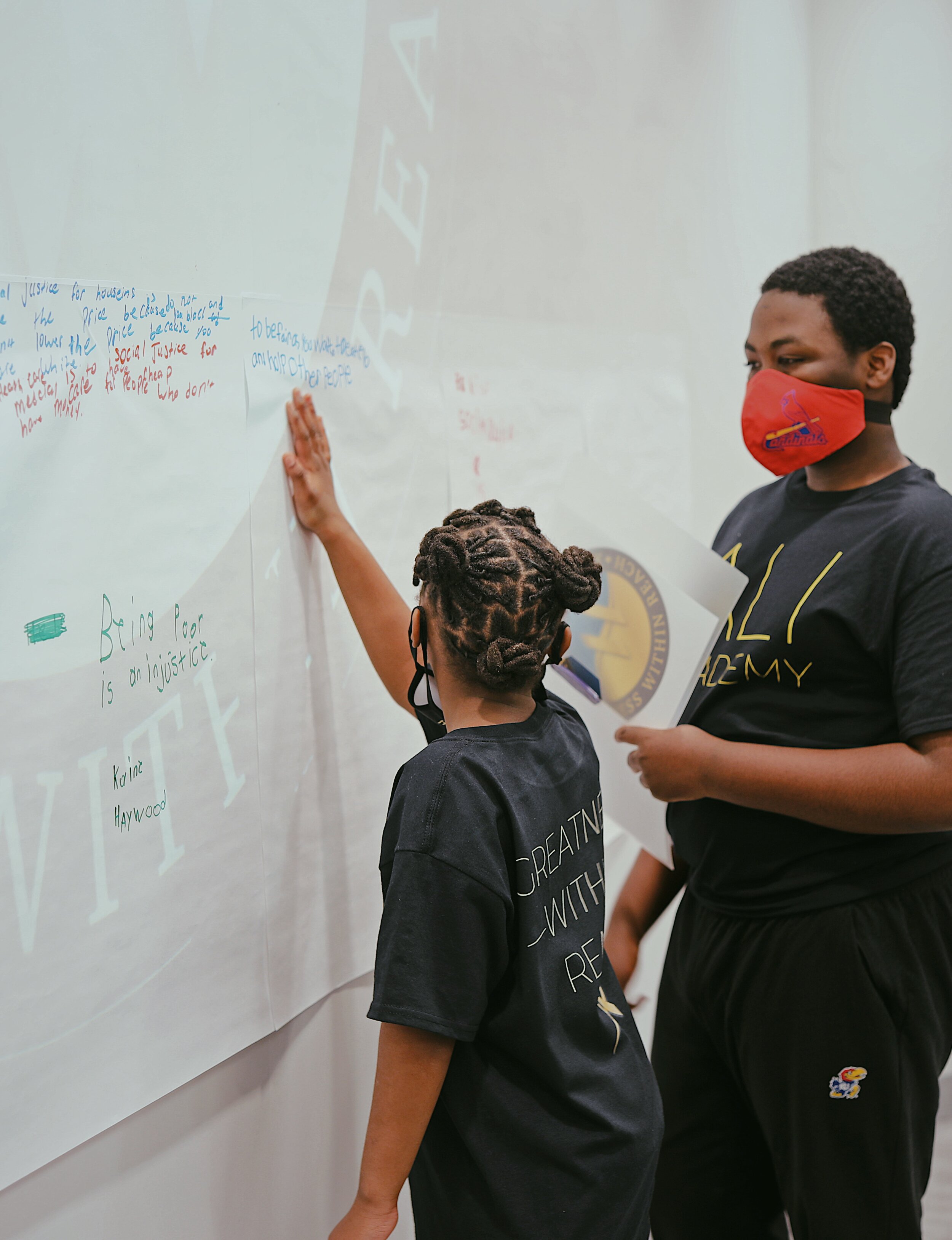
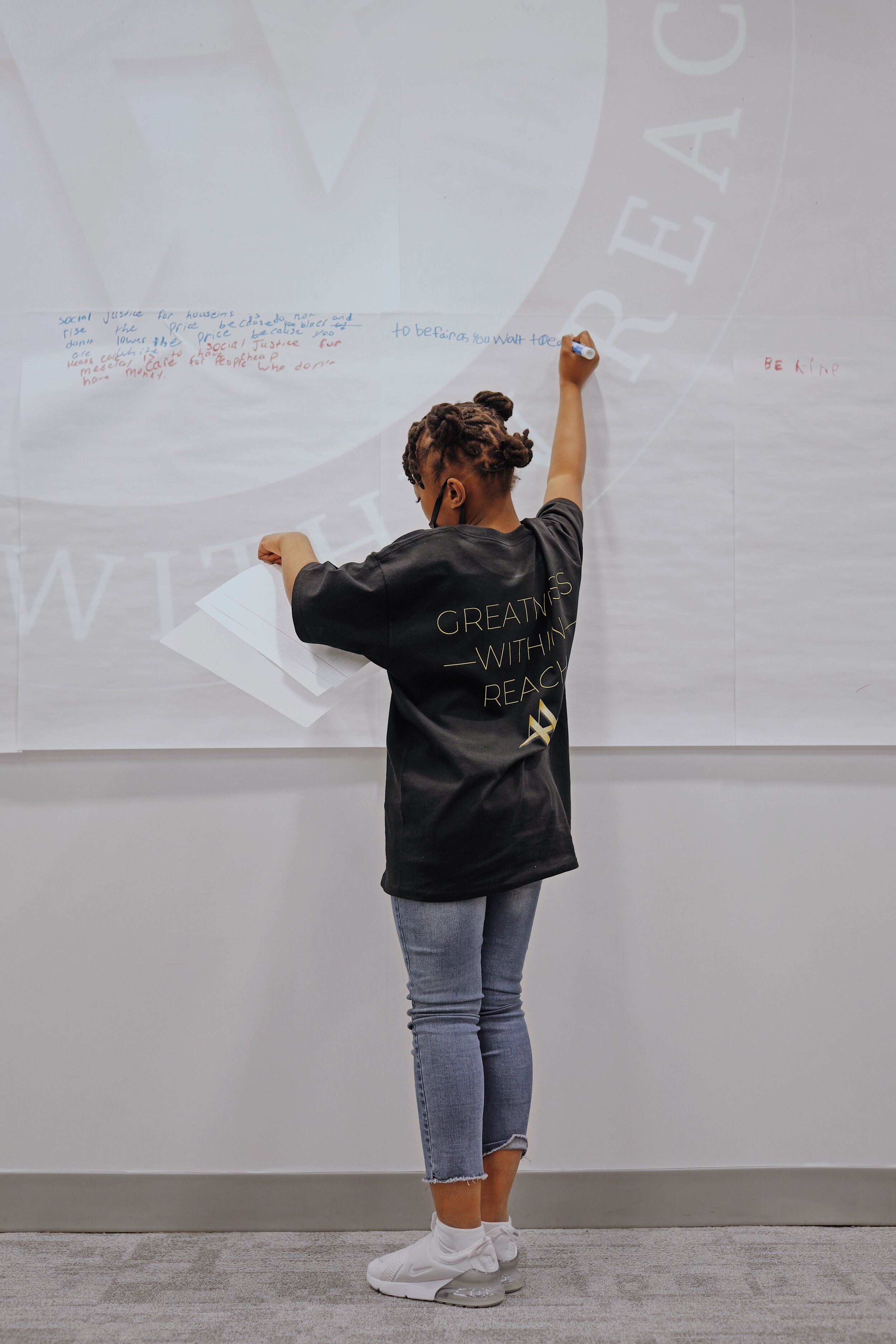
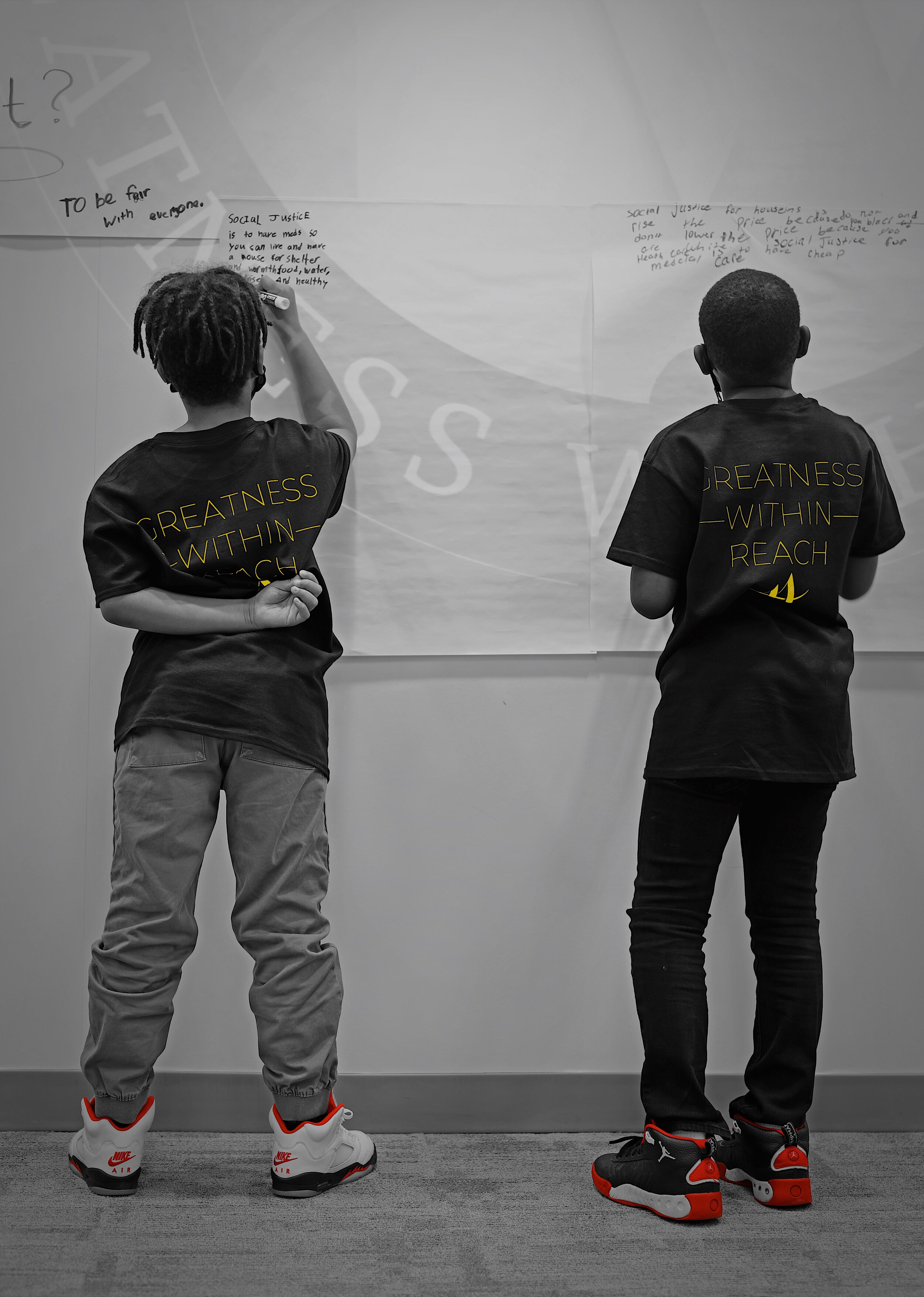
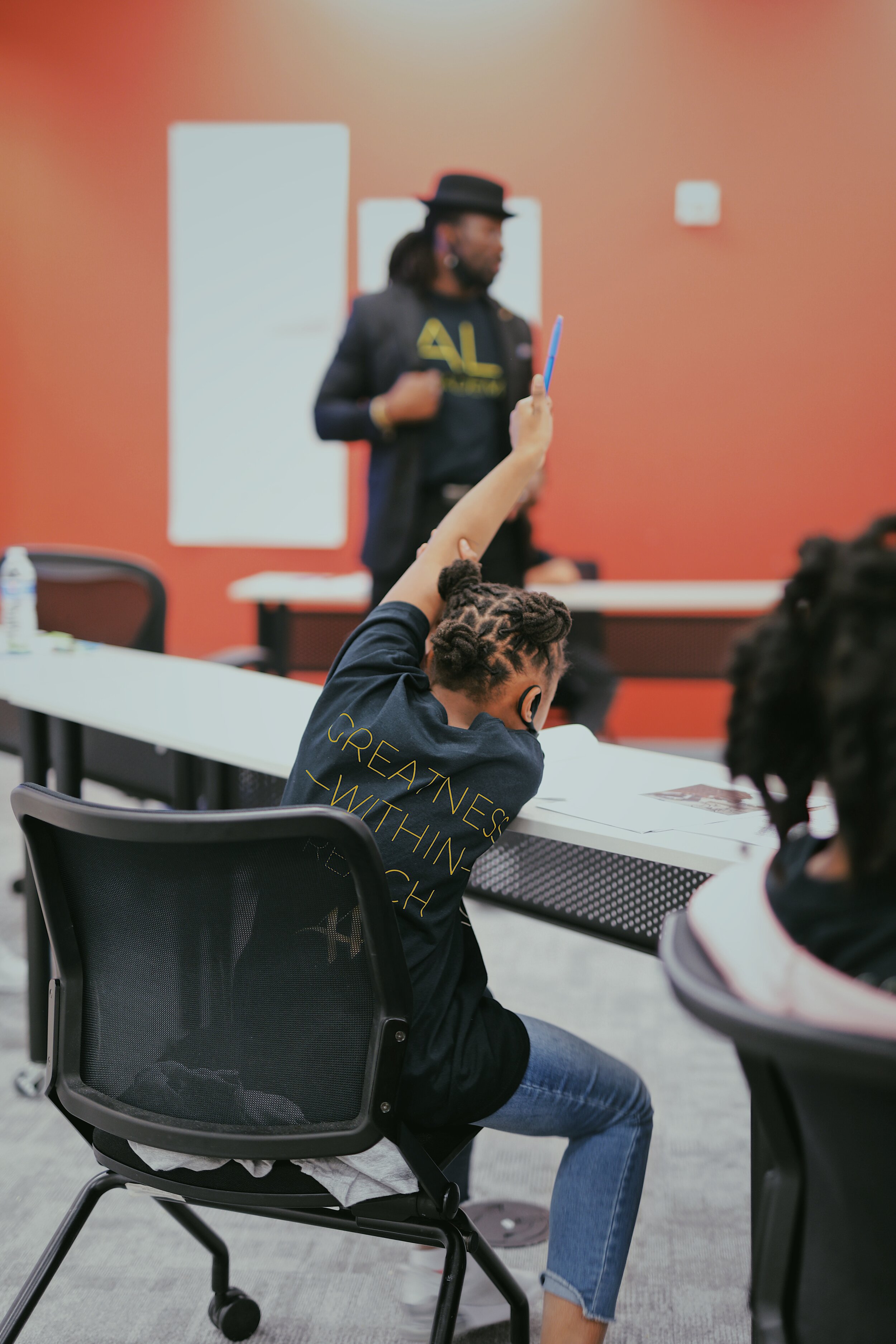
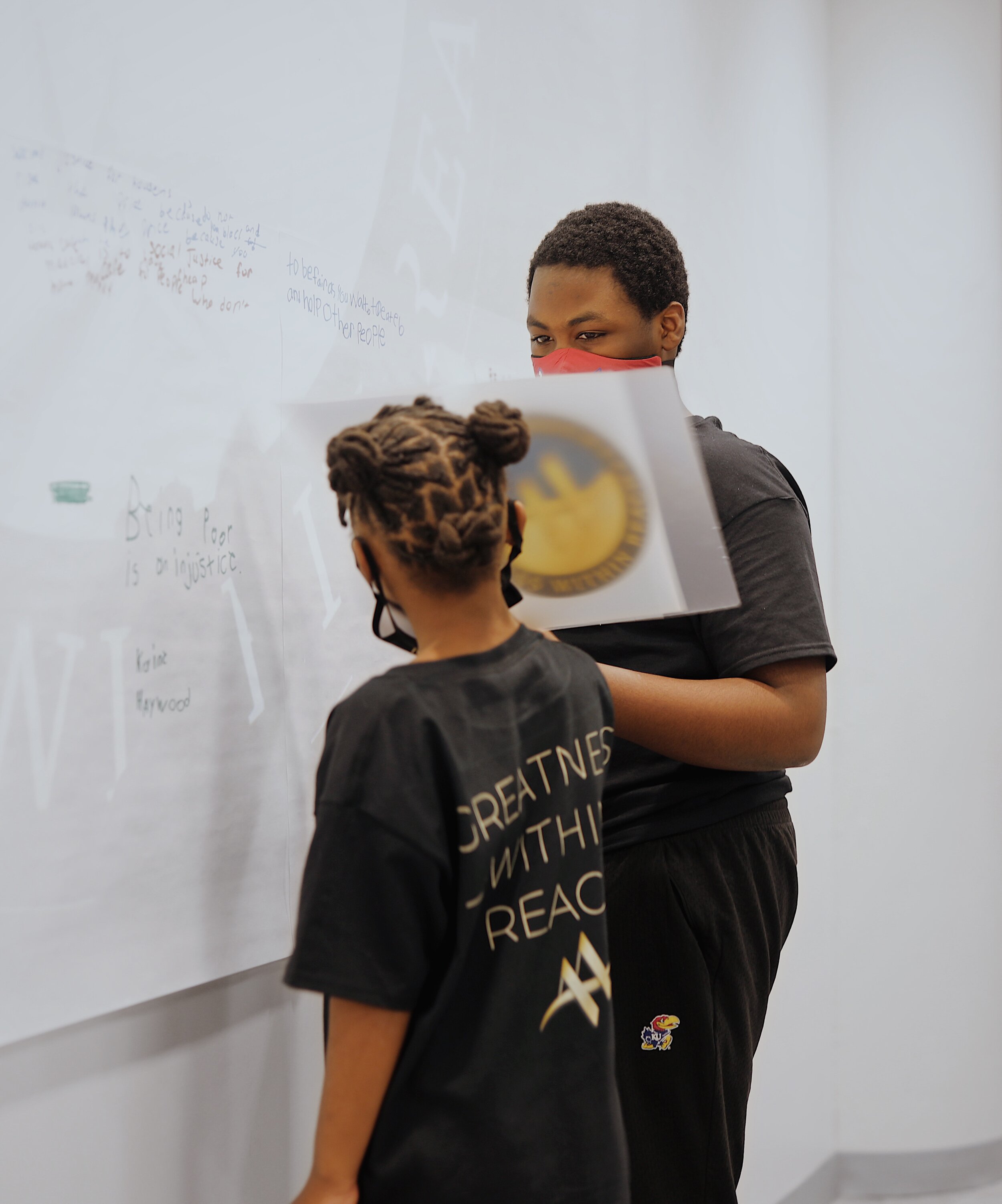
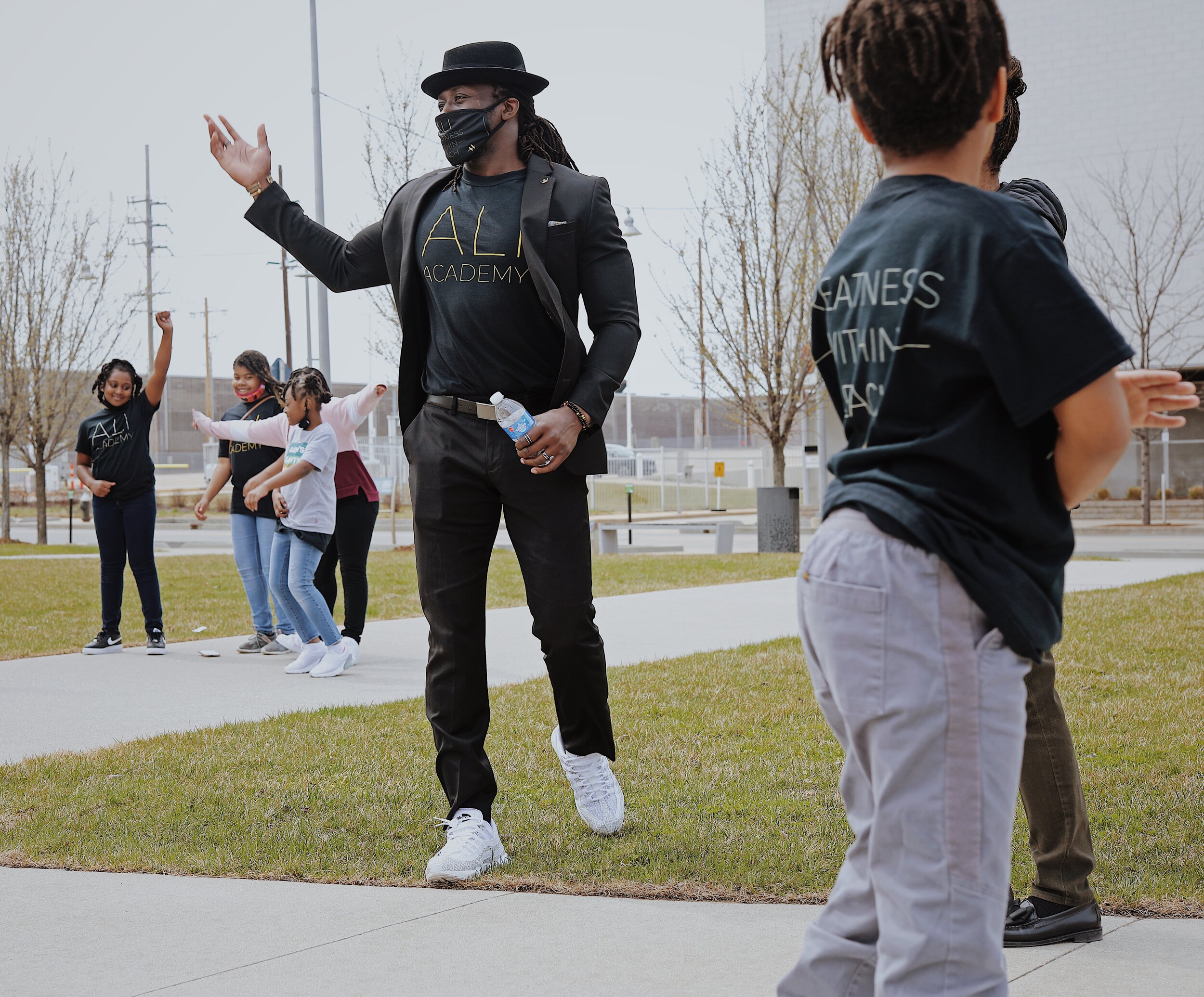
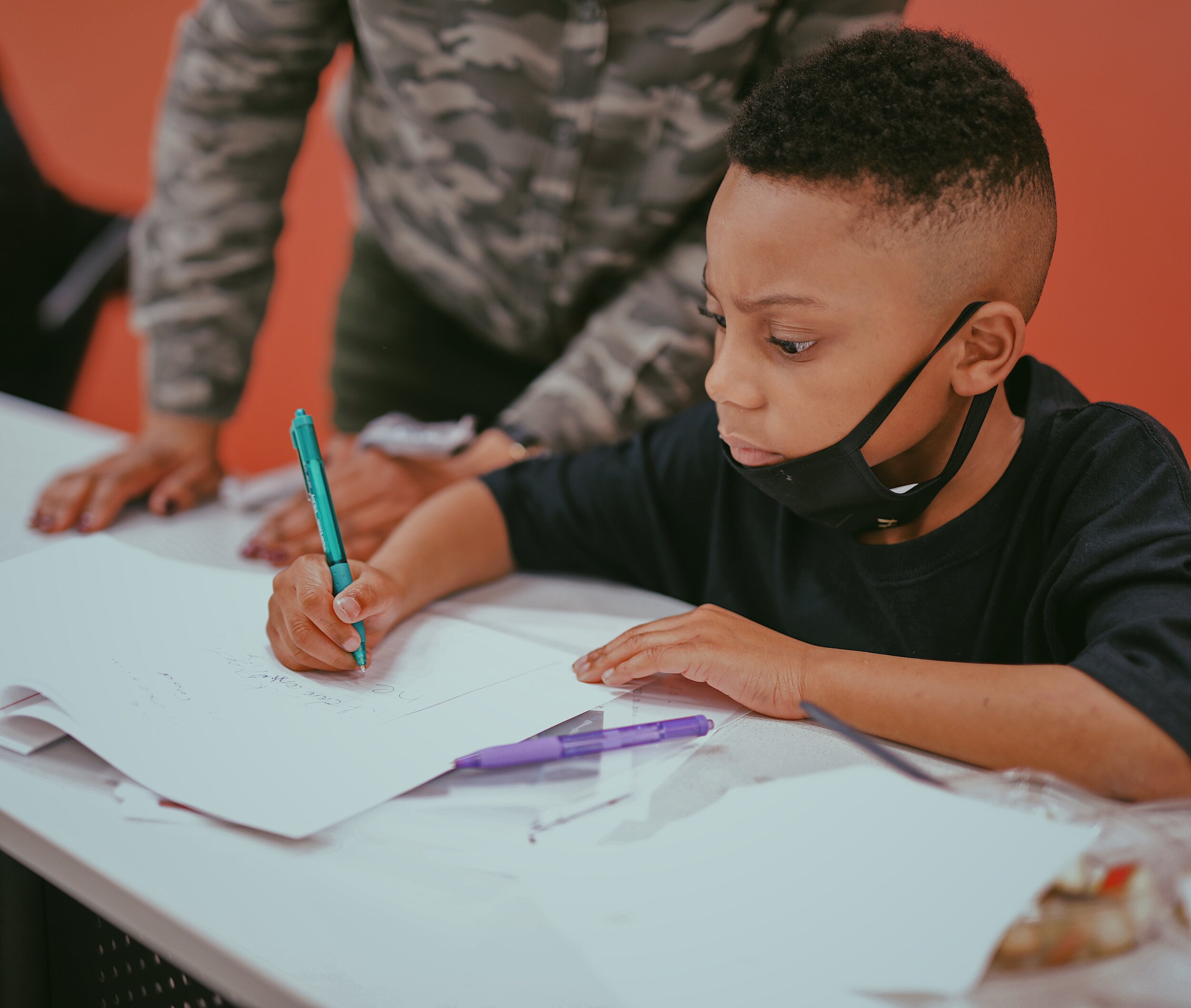
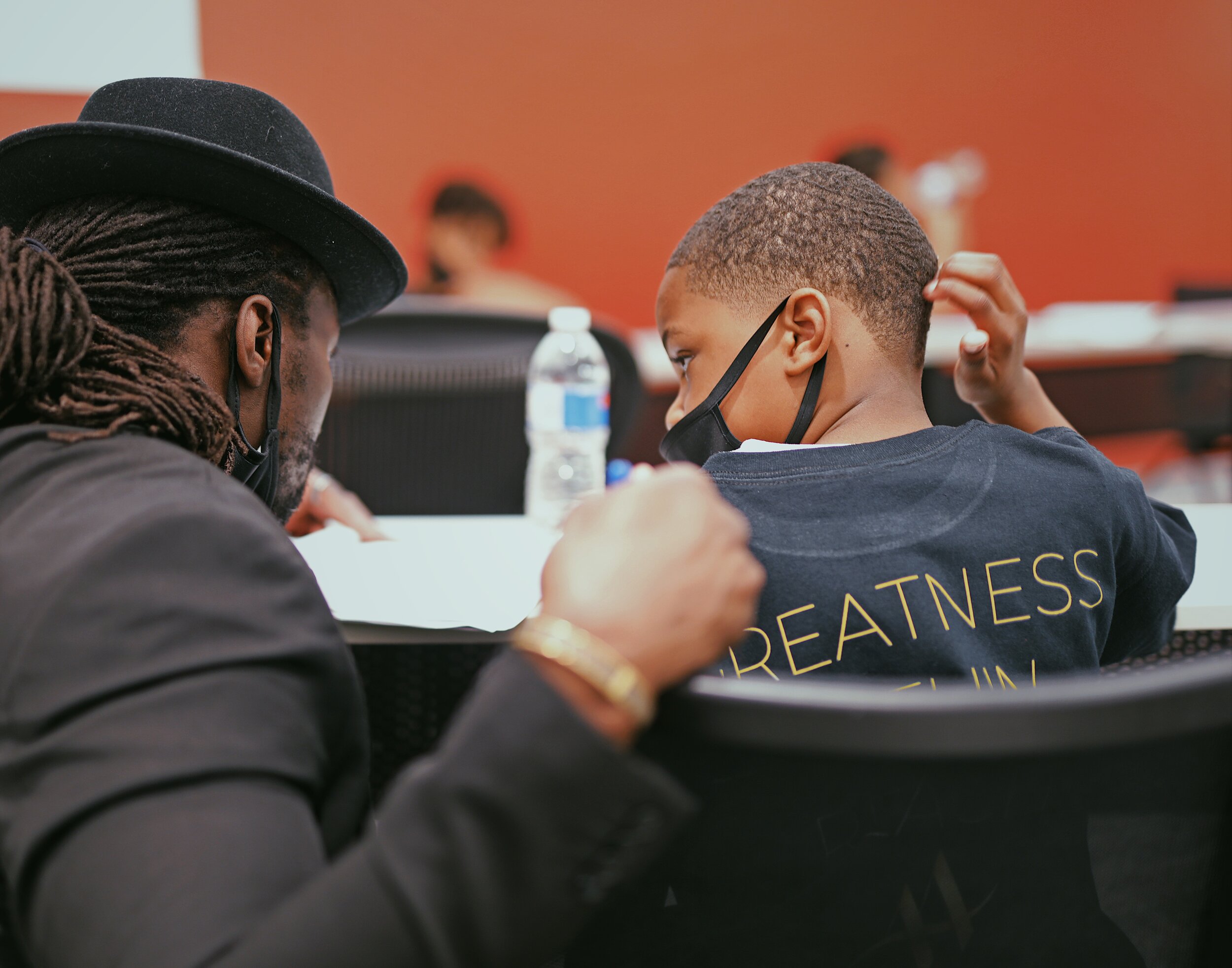
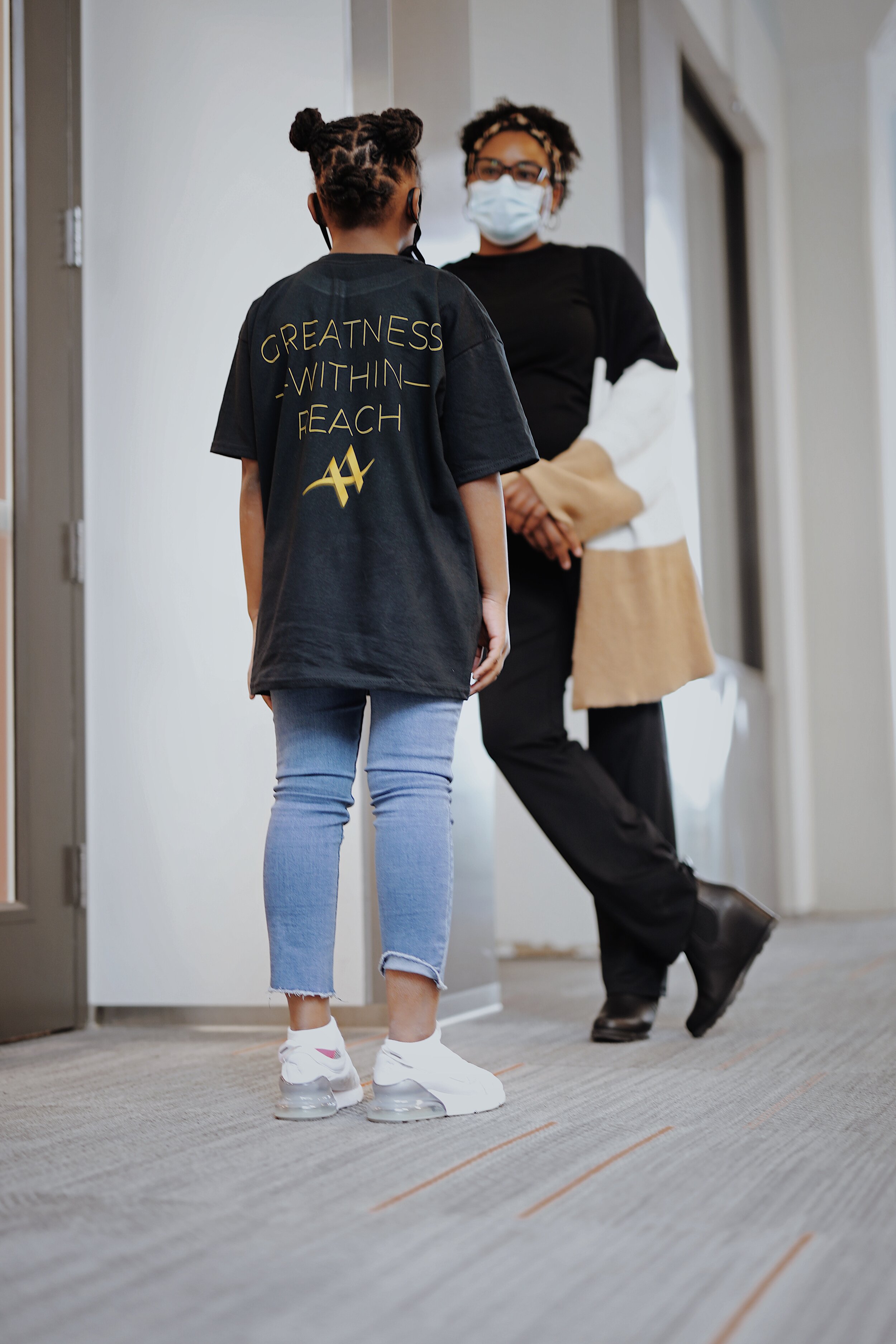
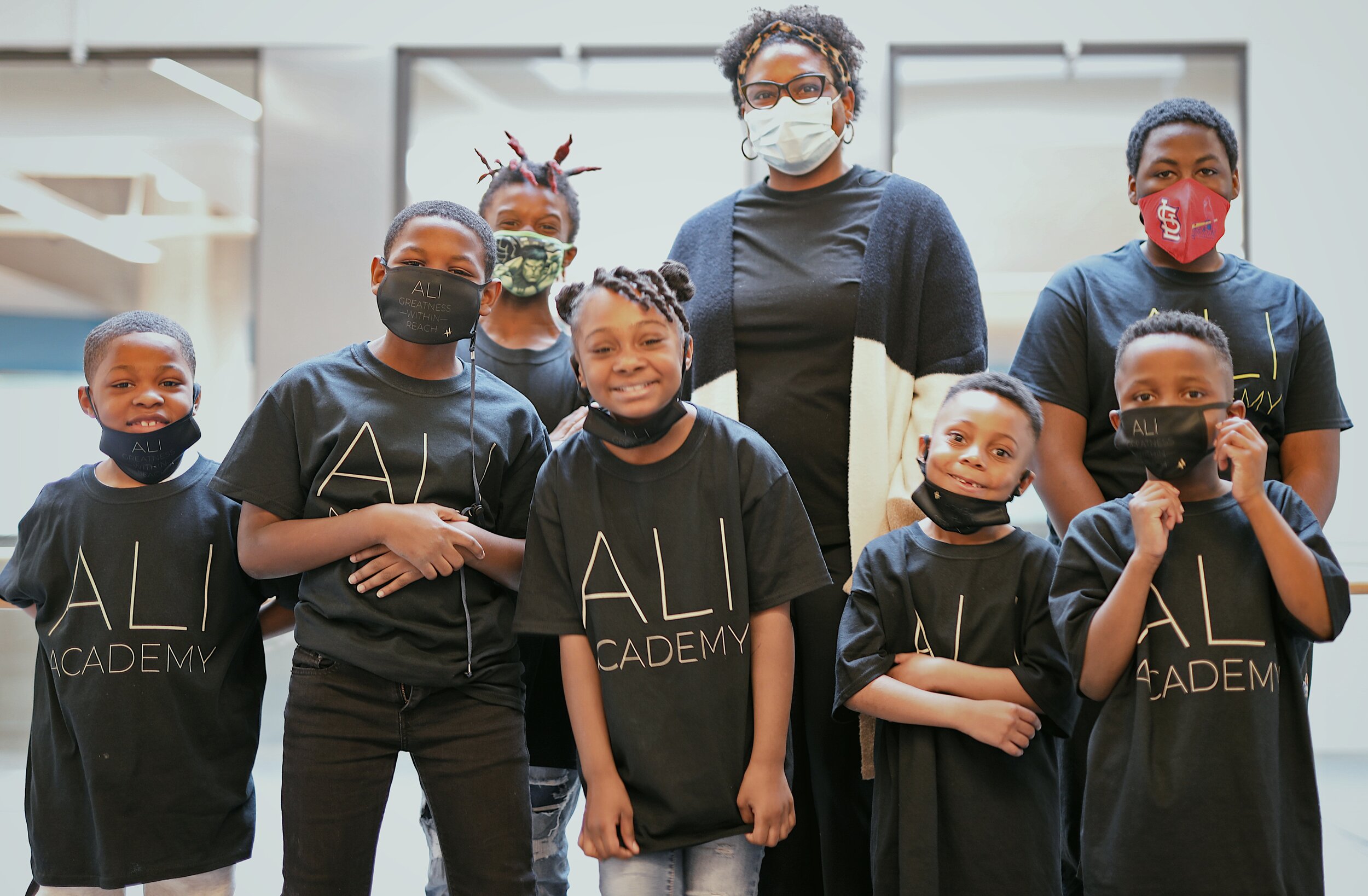
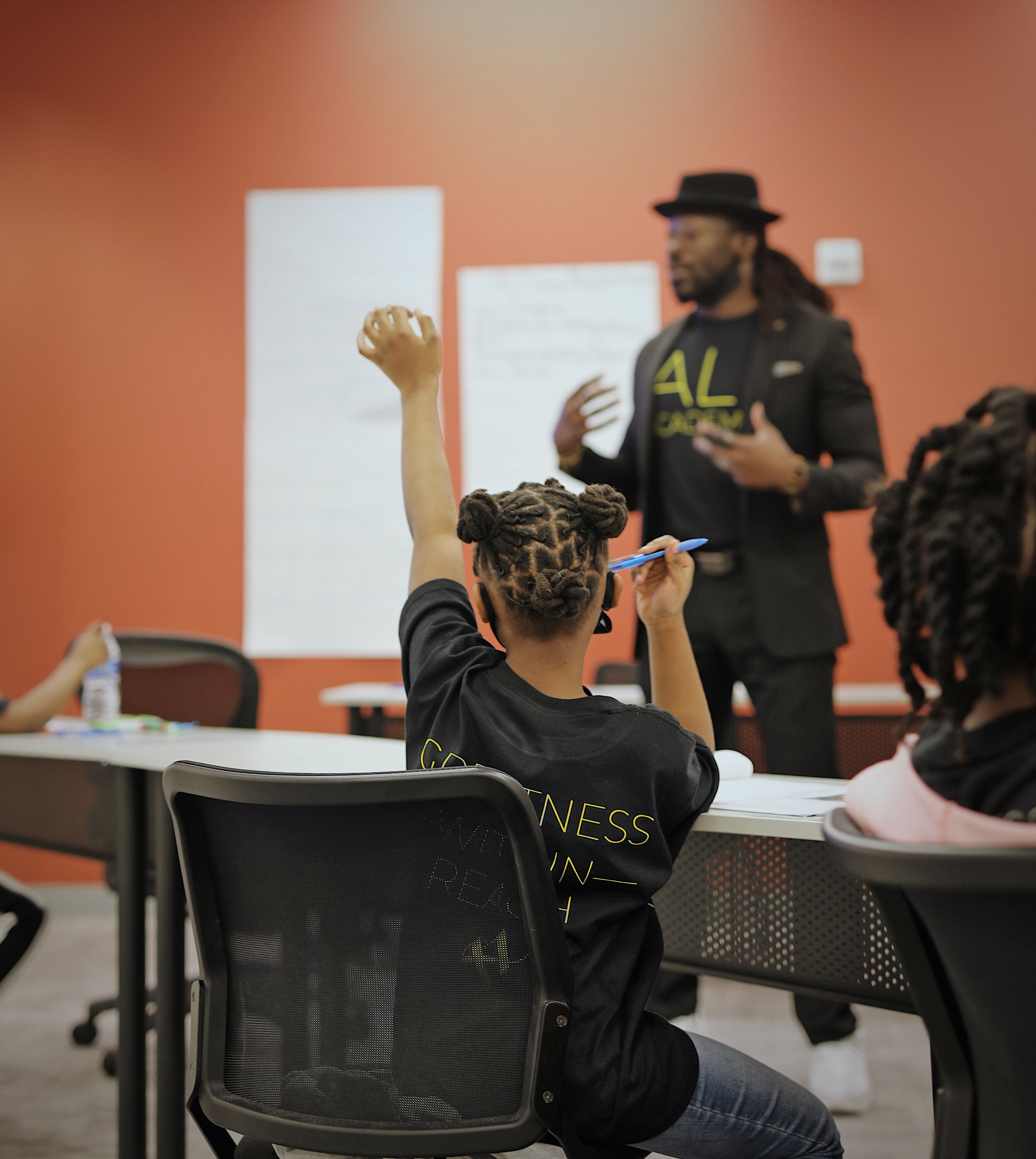
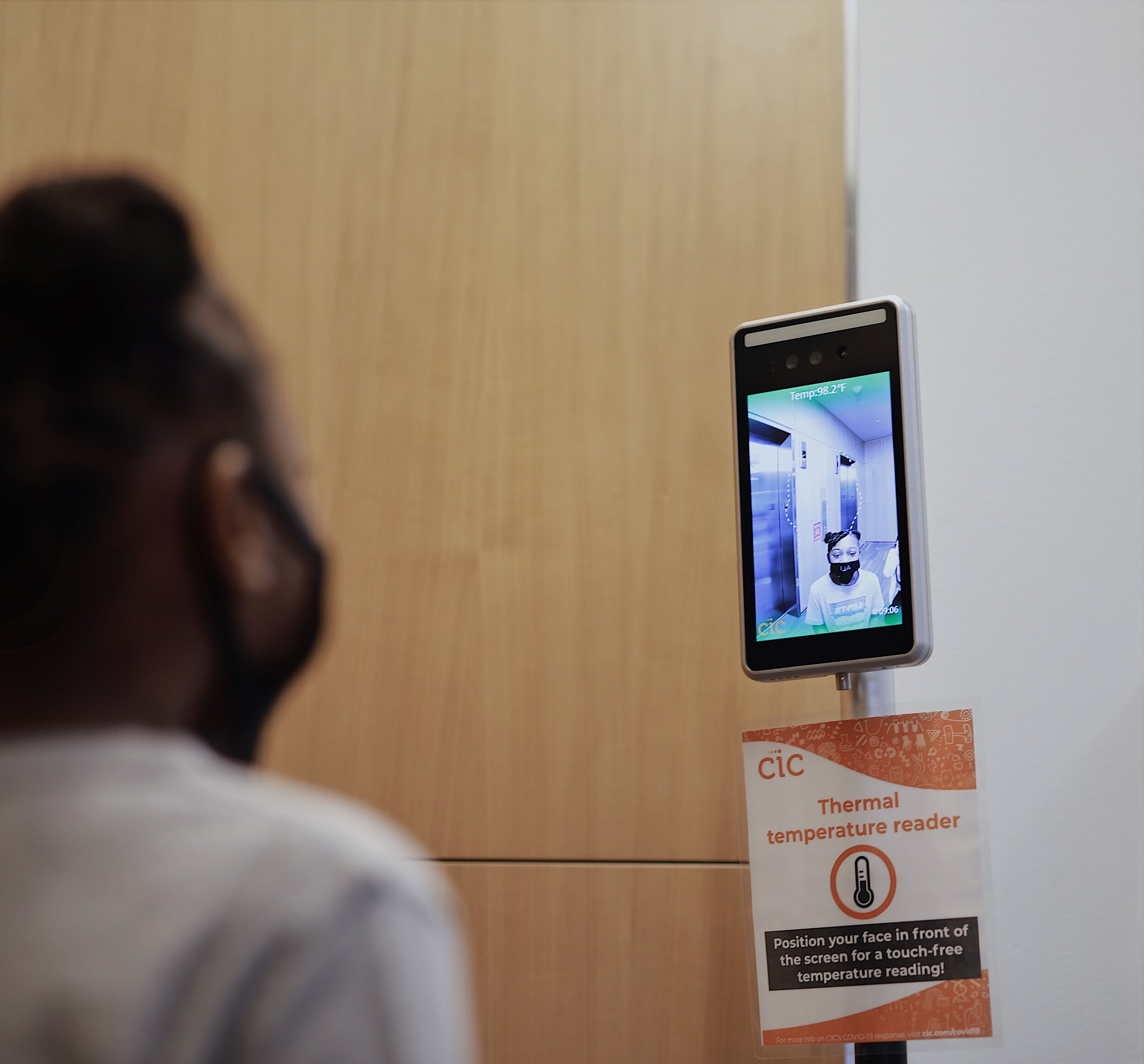
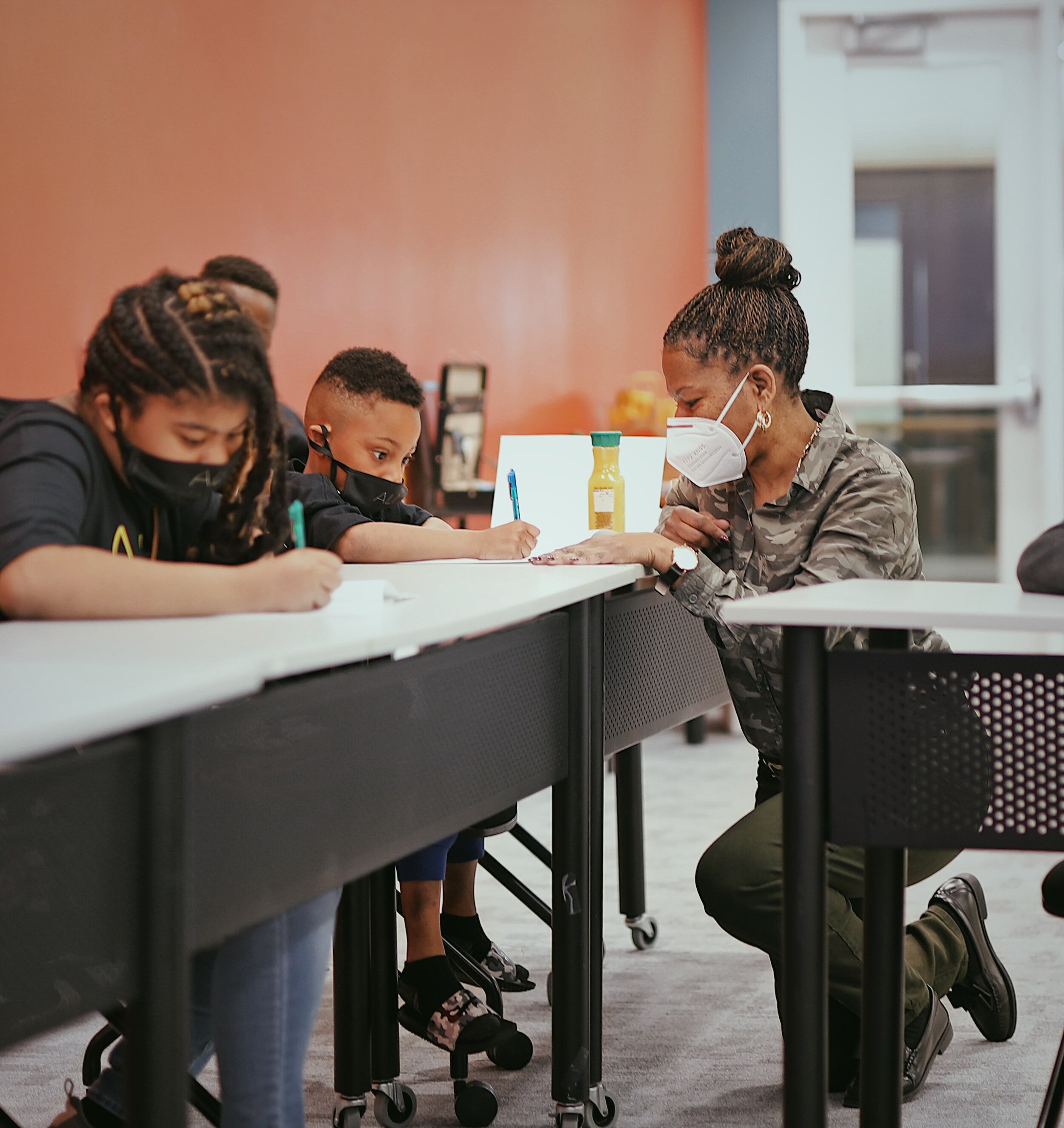
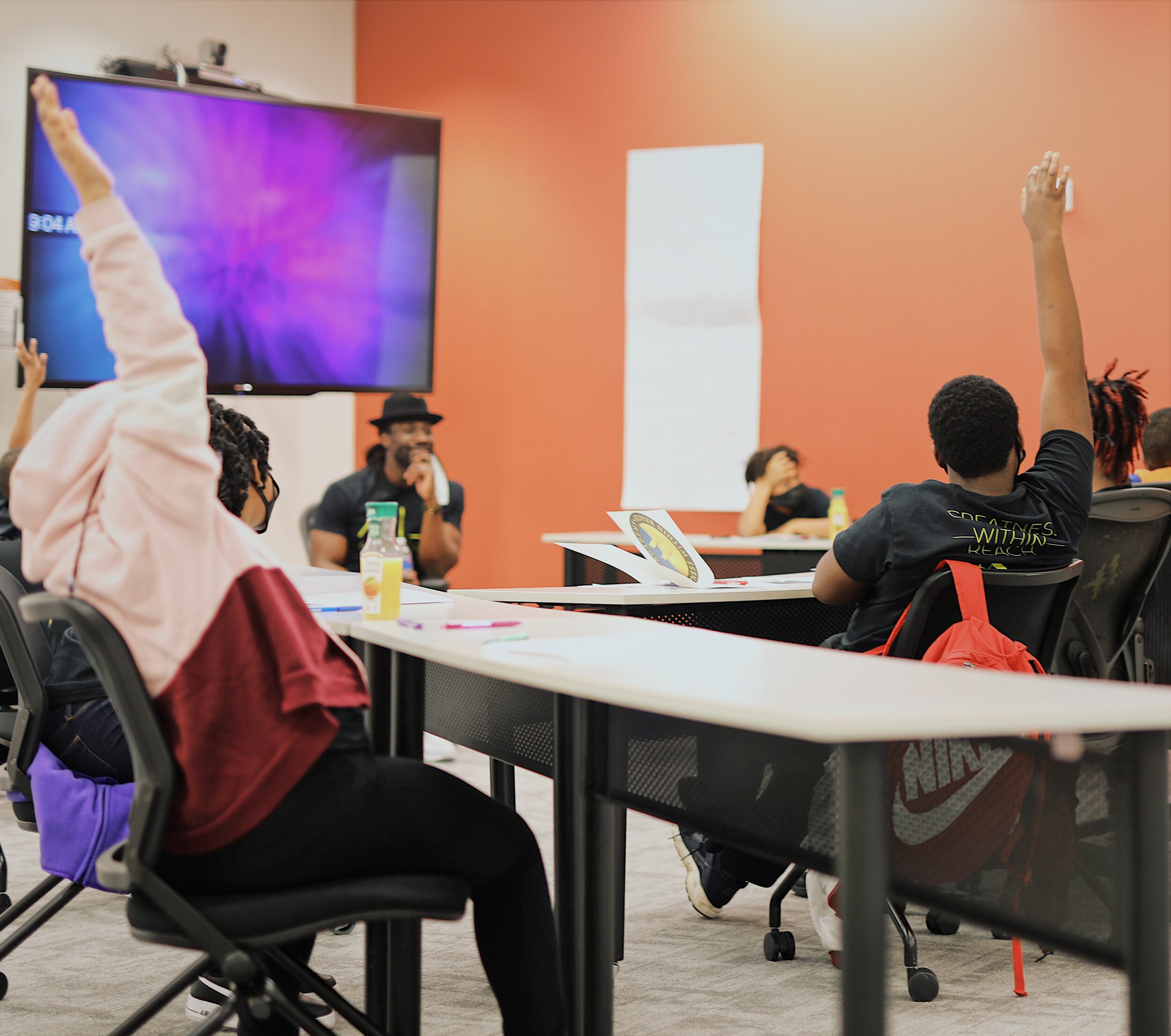
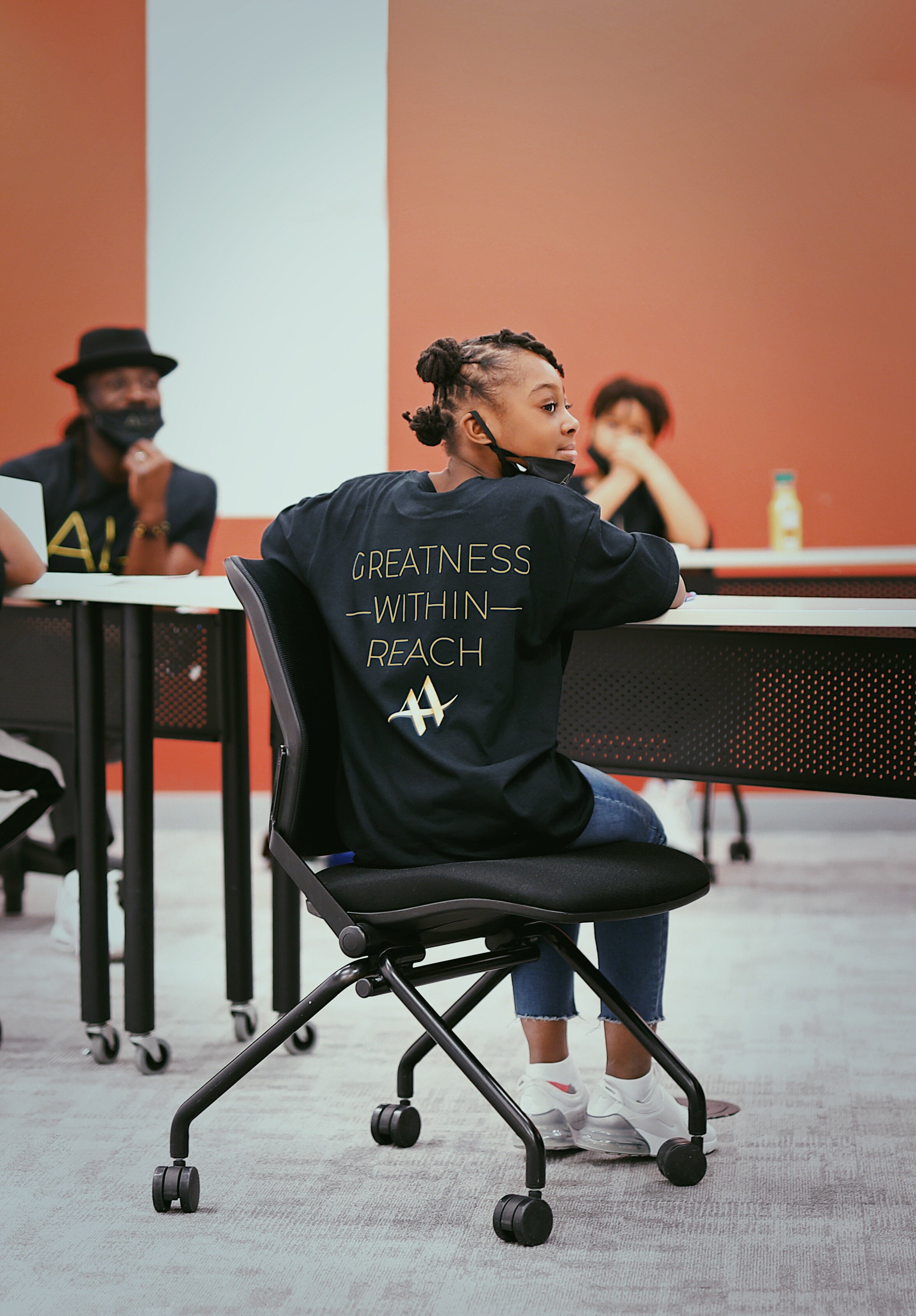
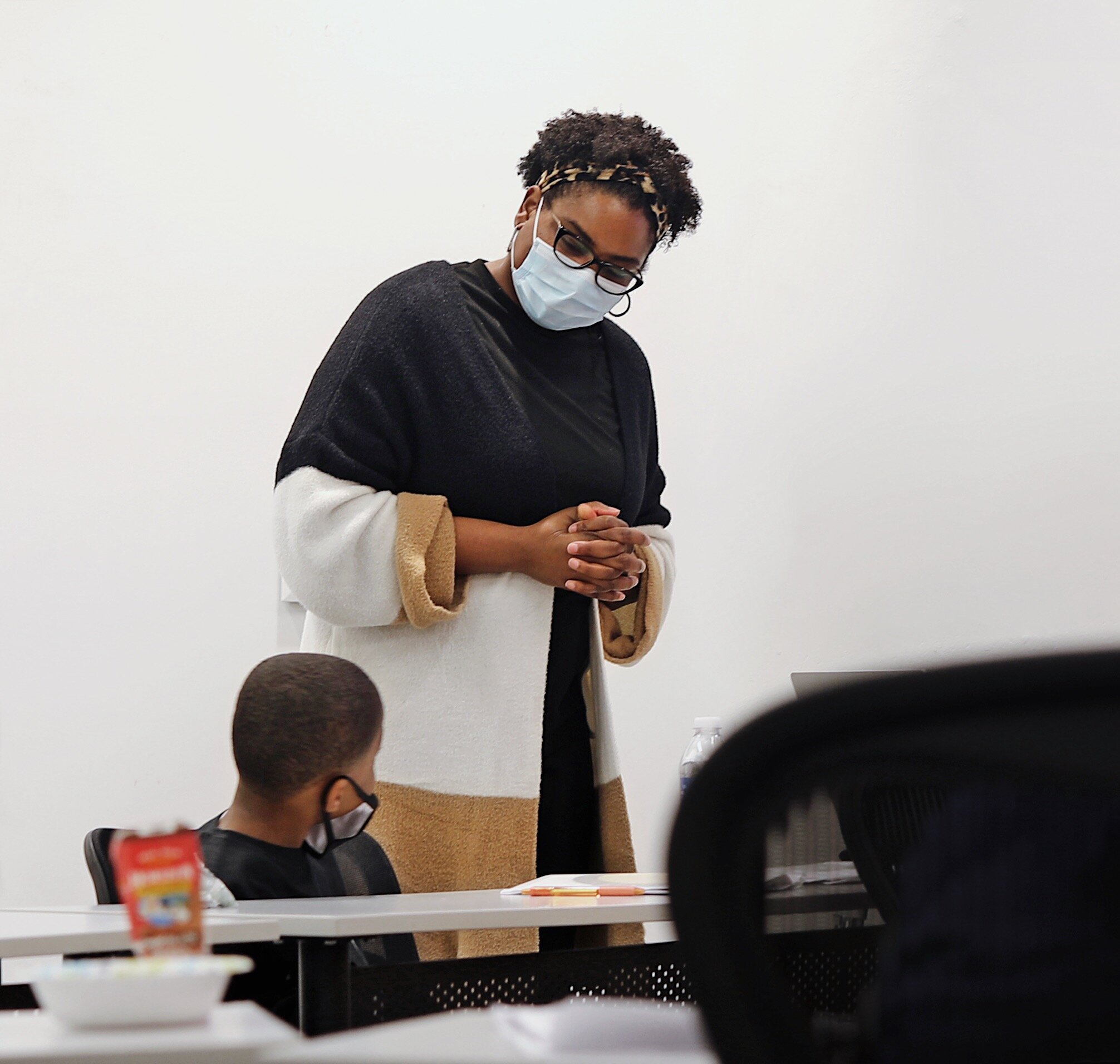
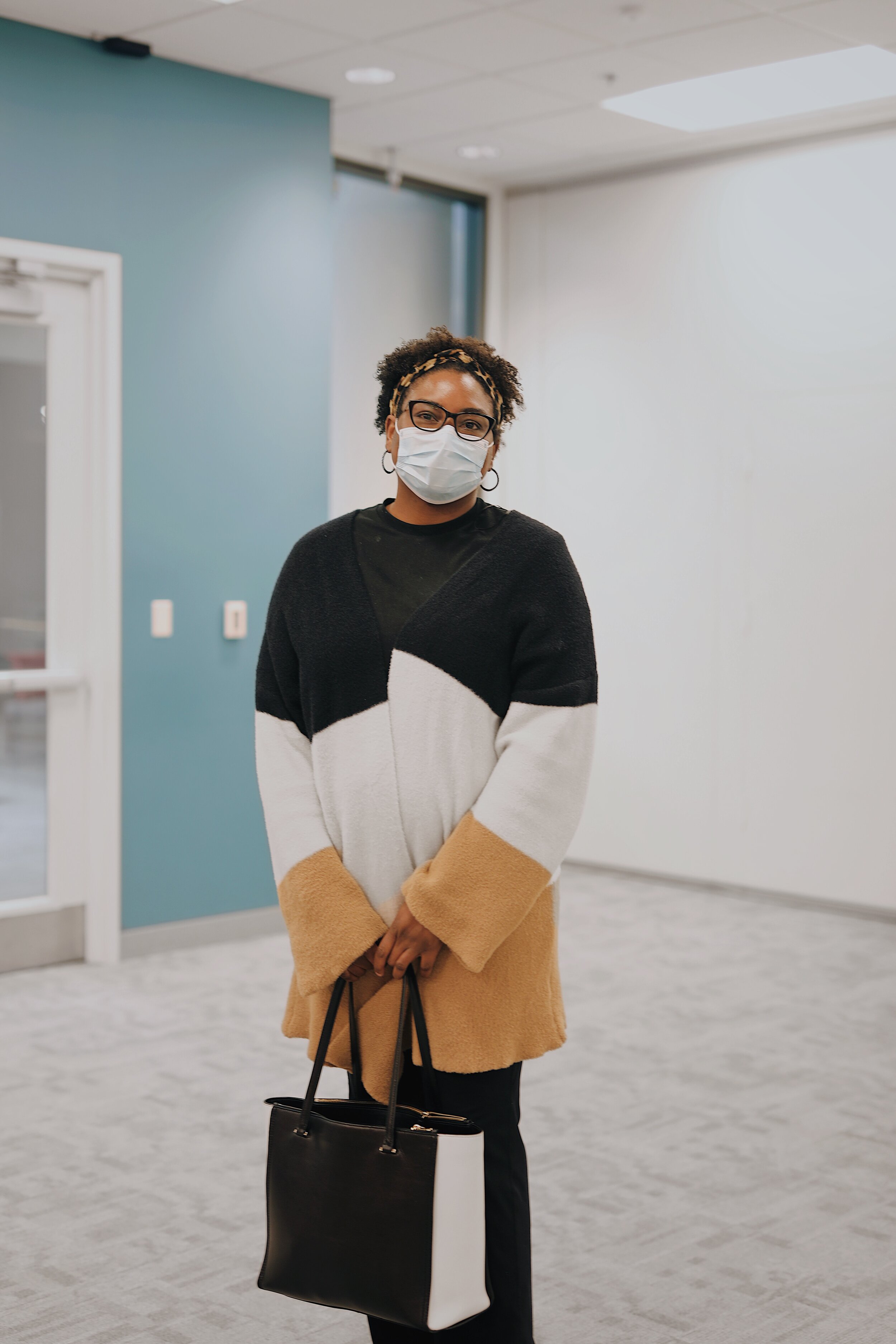
What is social justice?
Our Results
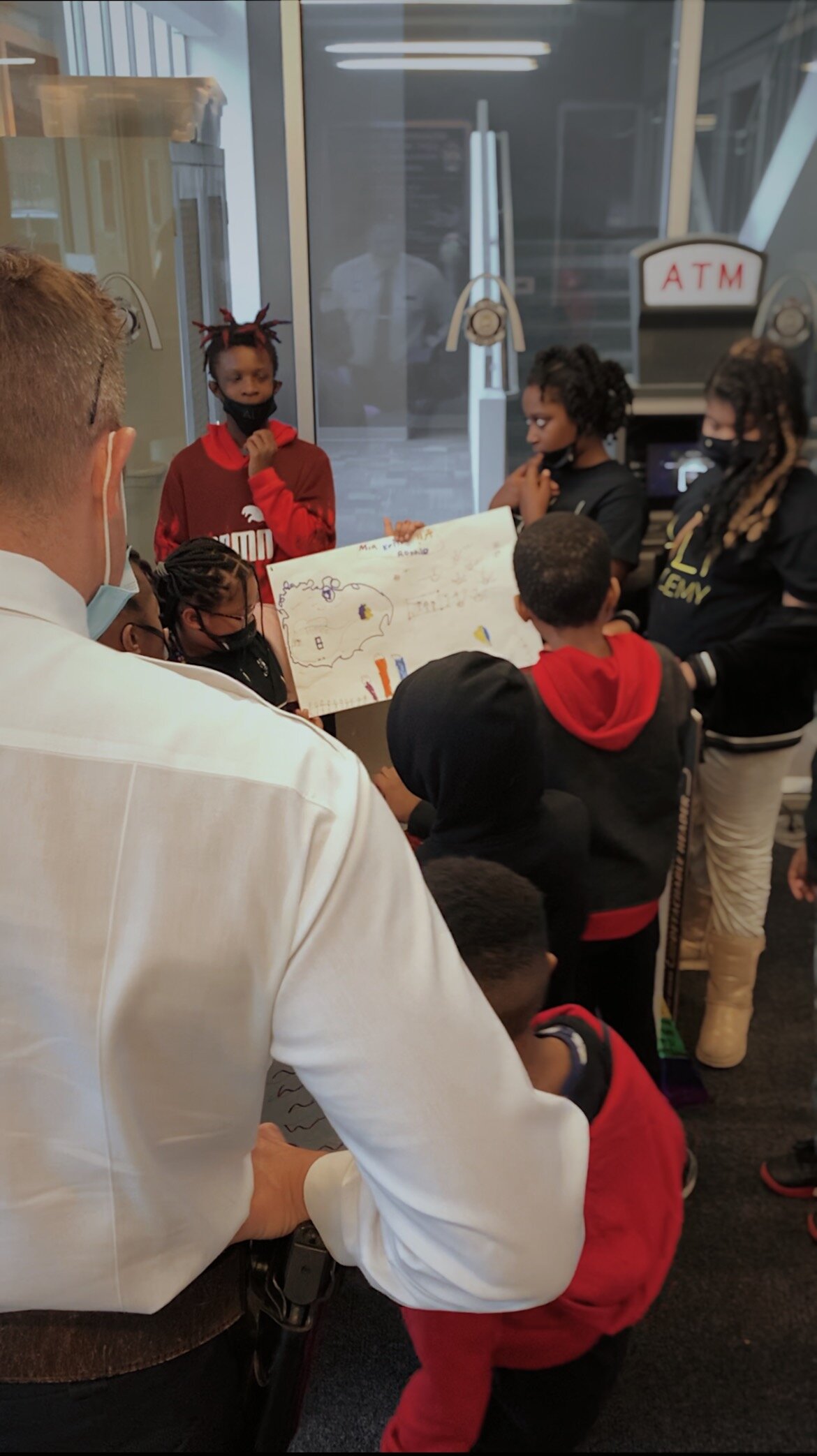
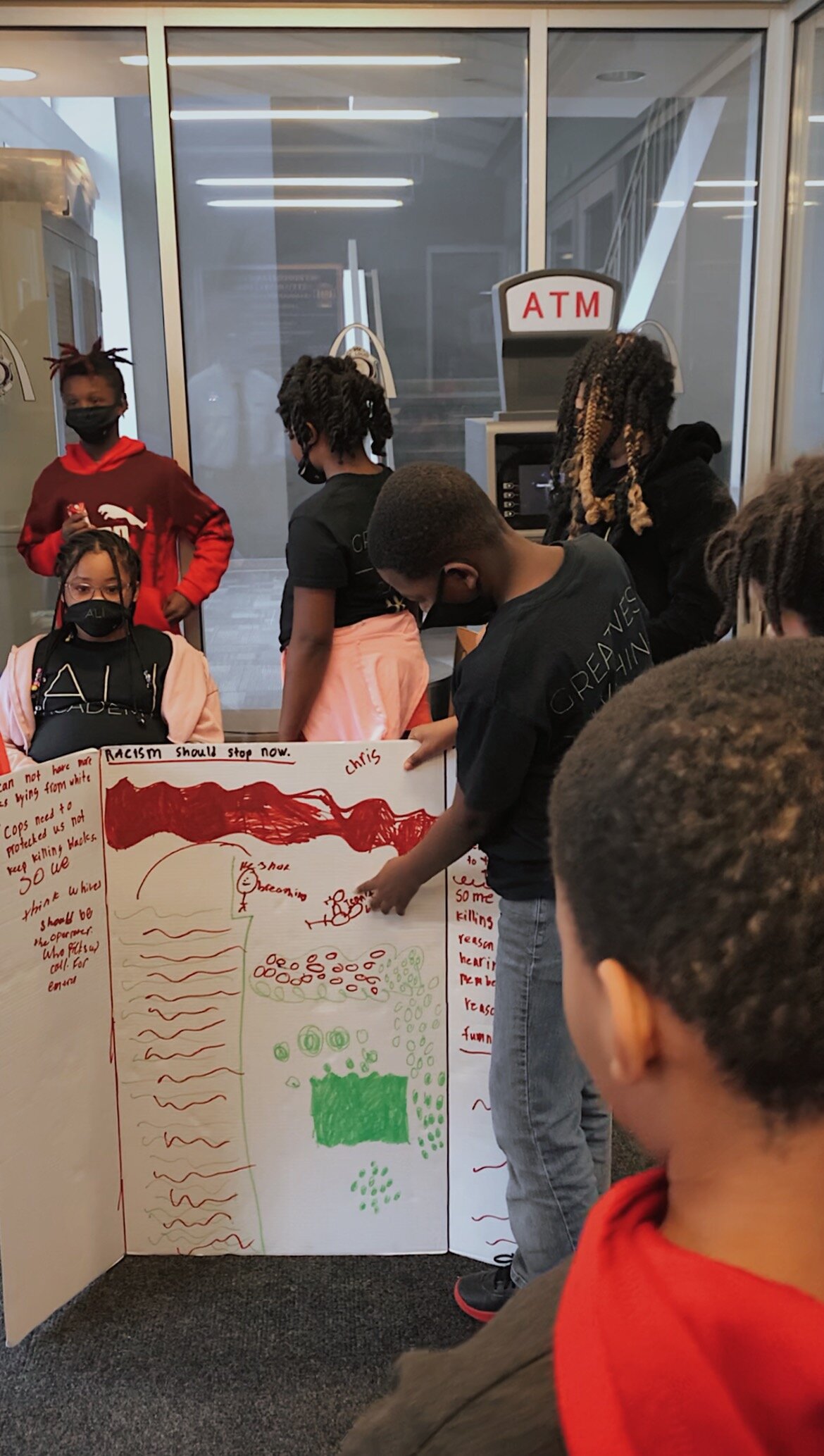
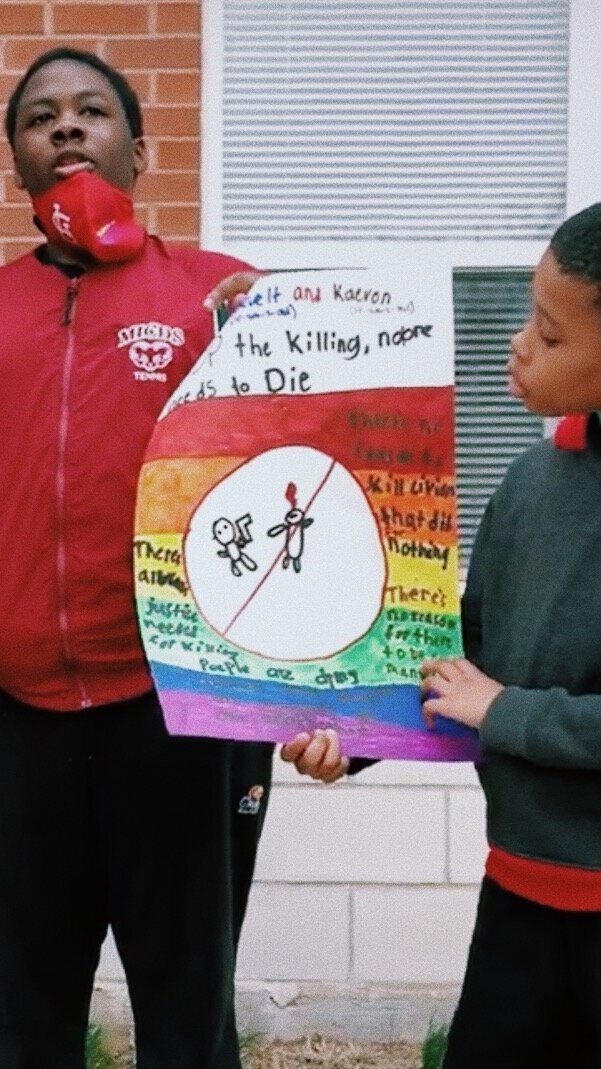
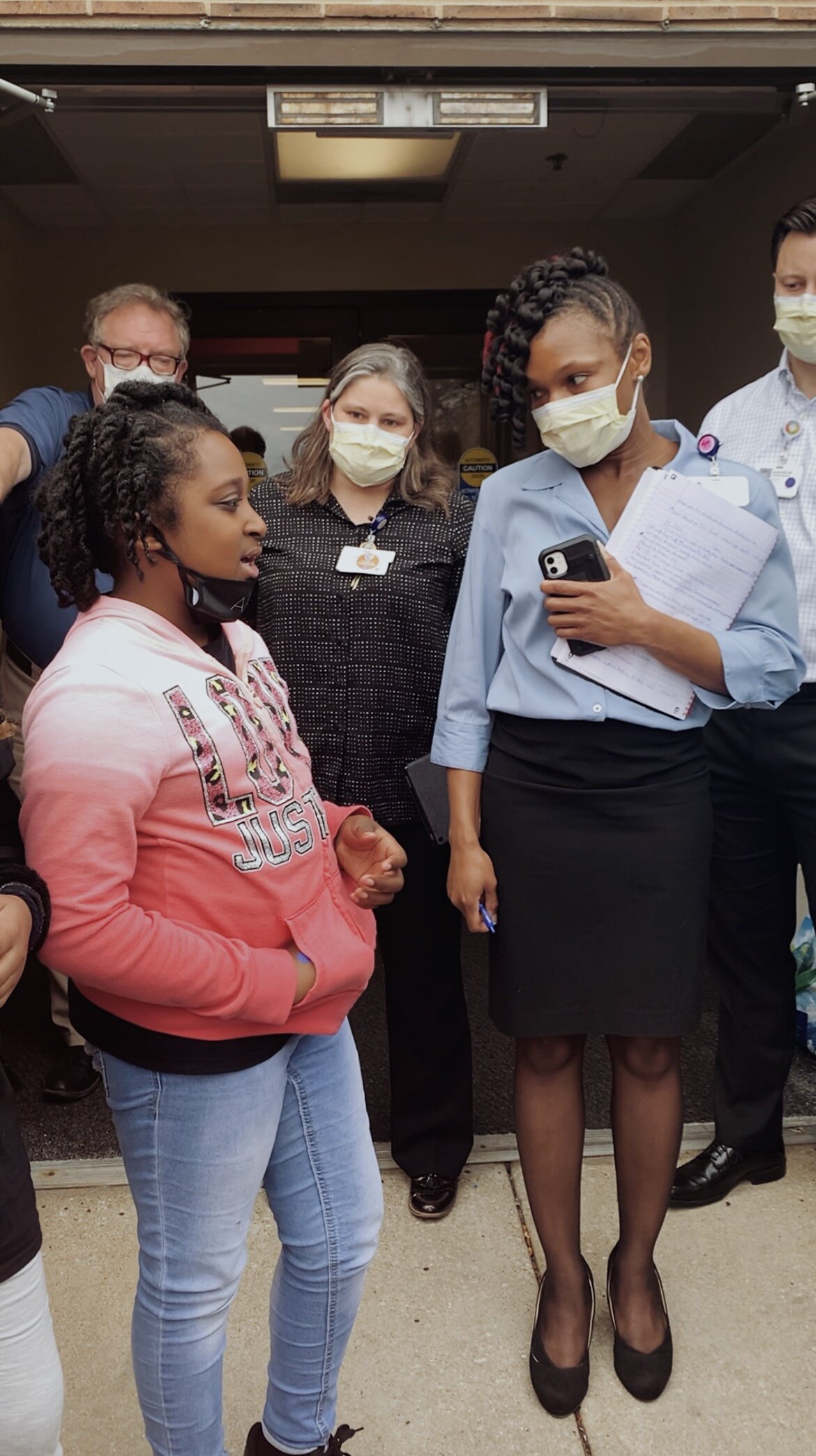
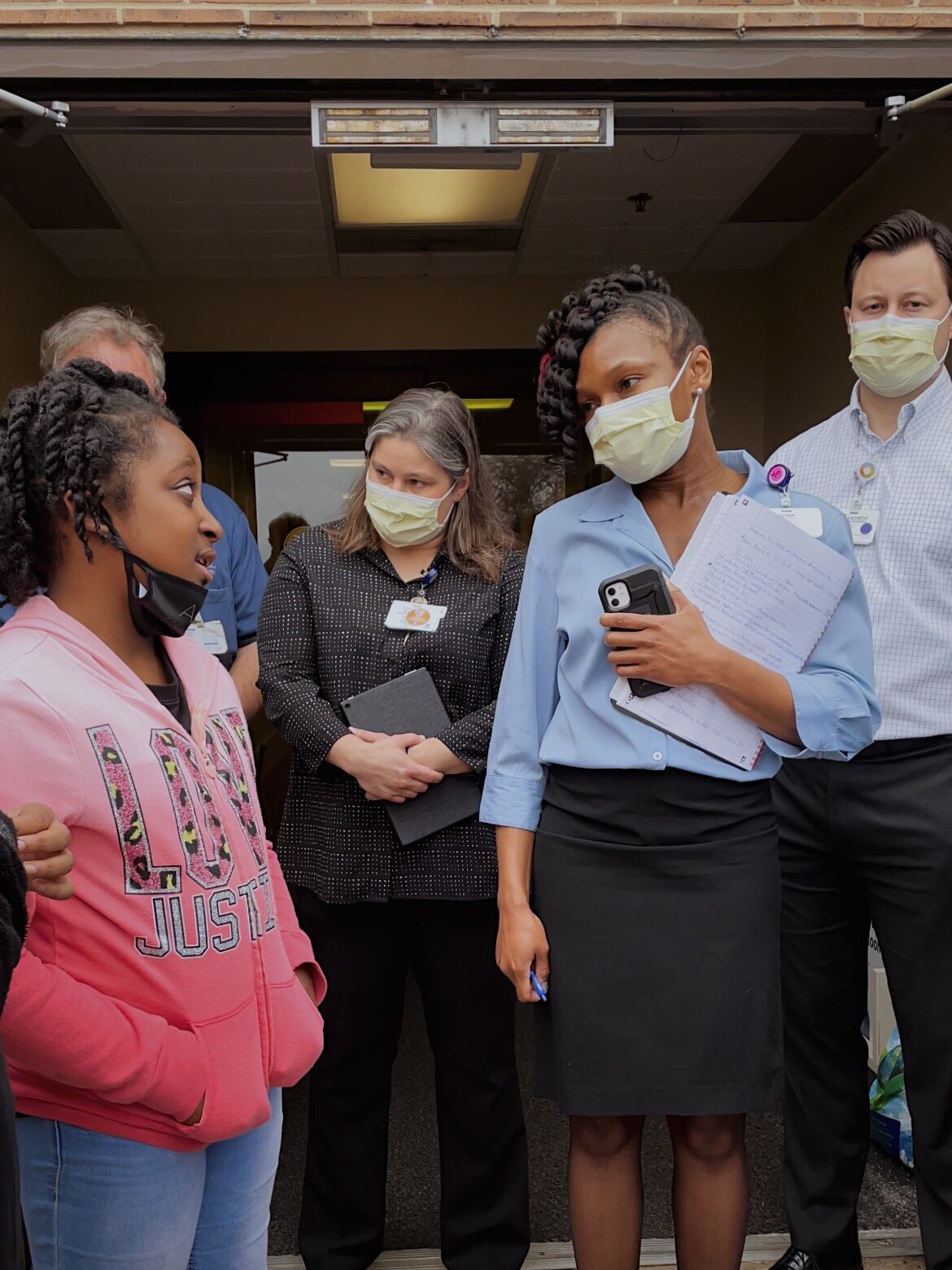
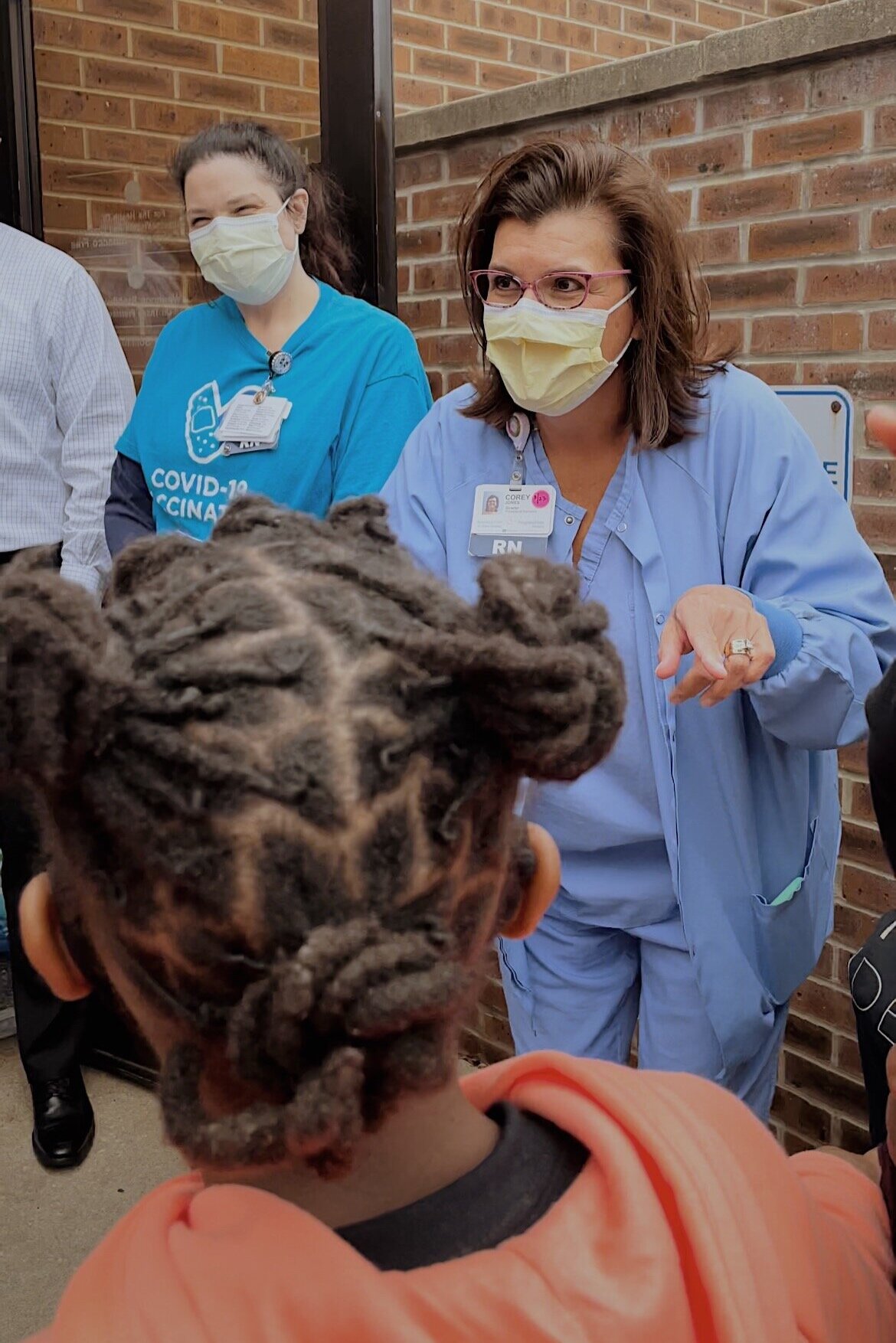
Unlike your typical school, this is the type of social justice heartwork our scholars will be engaged in every day. We learn, we inquire, we study, and then we take action.
Interested in enrollment? Let us know here!

